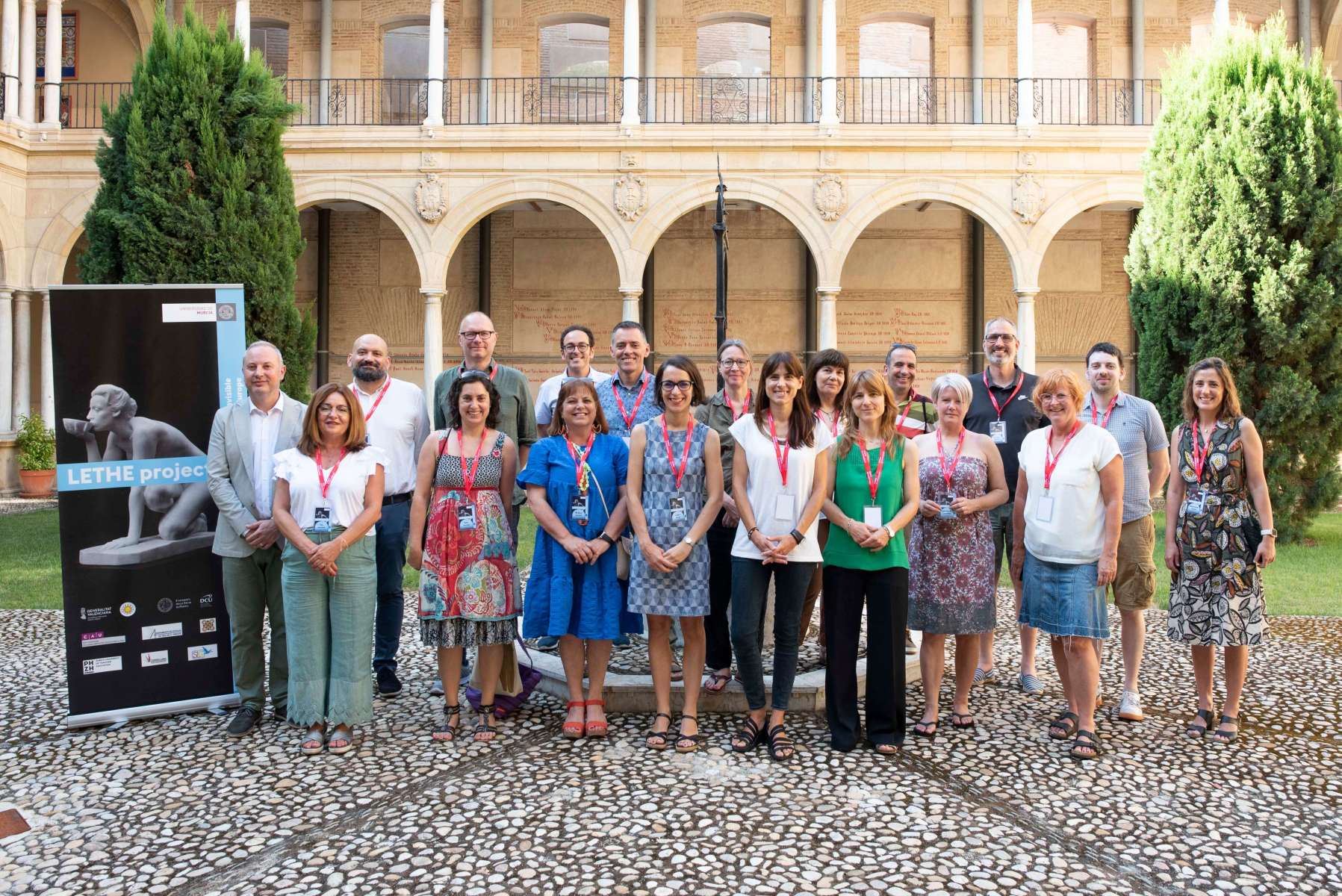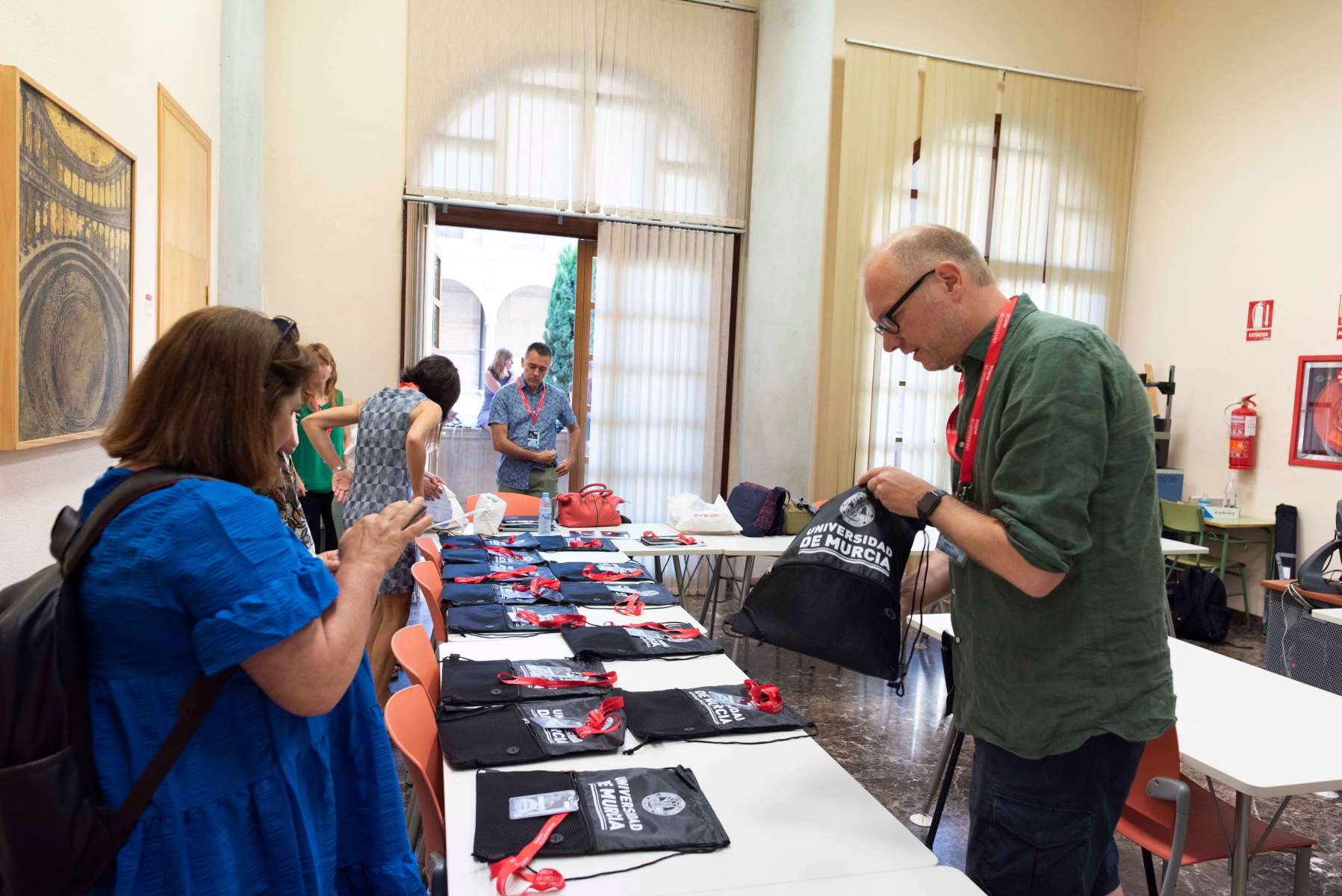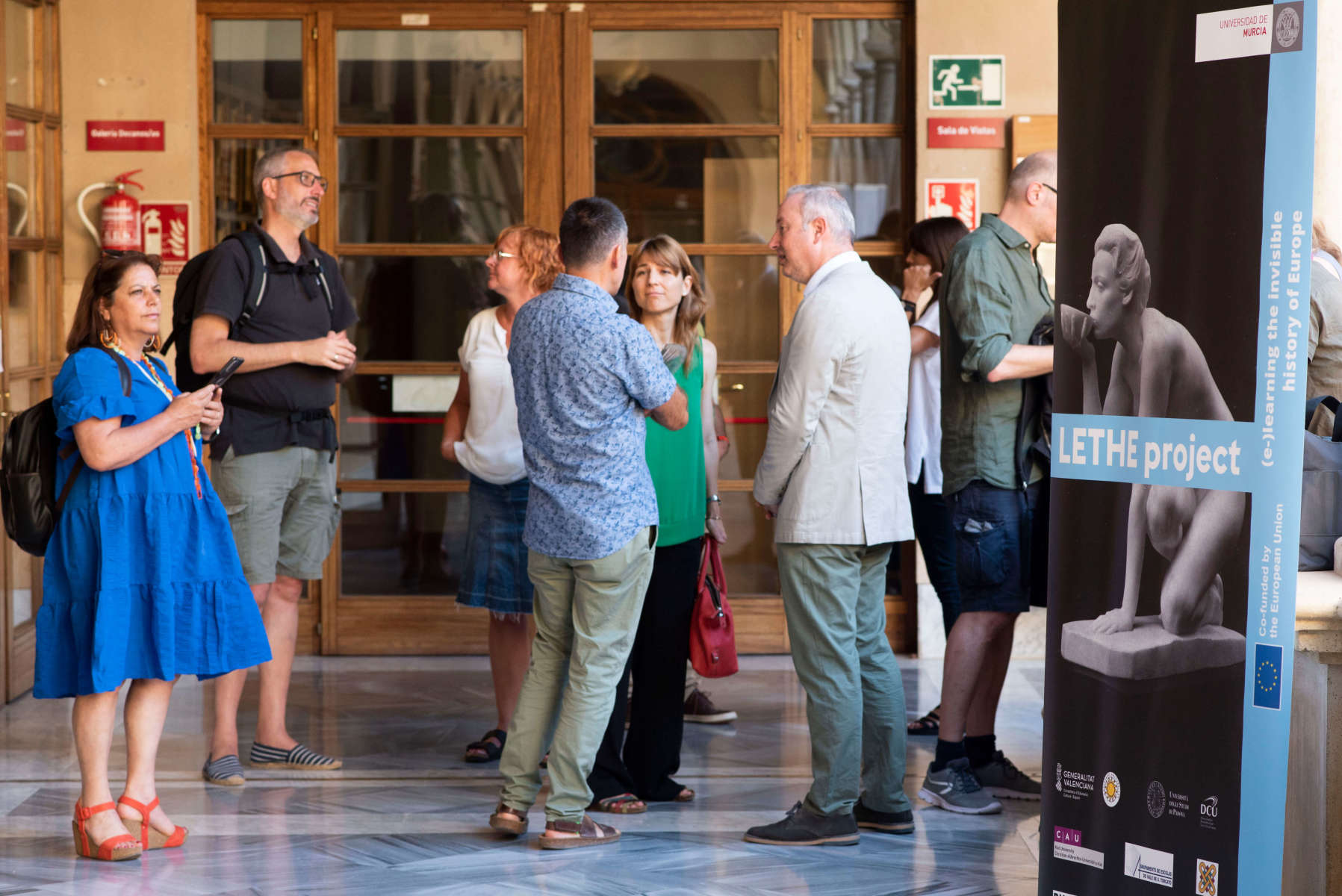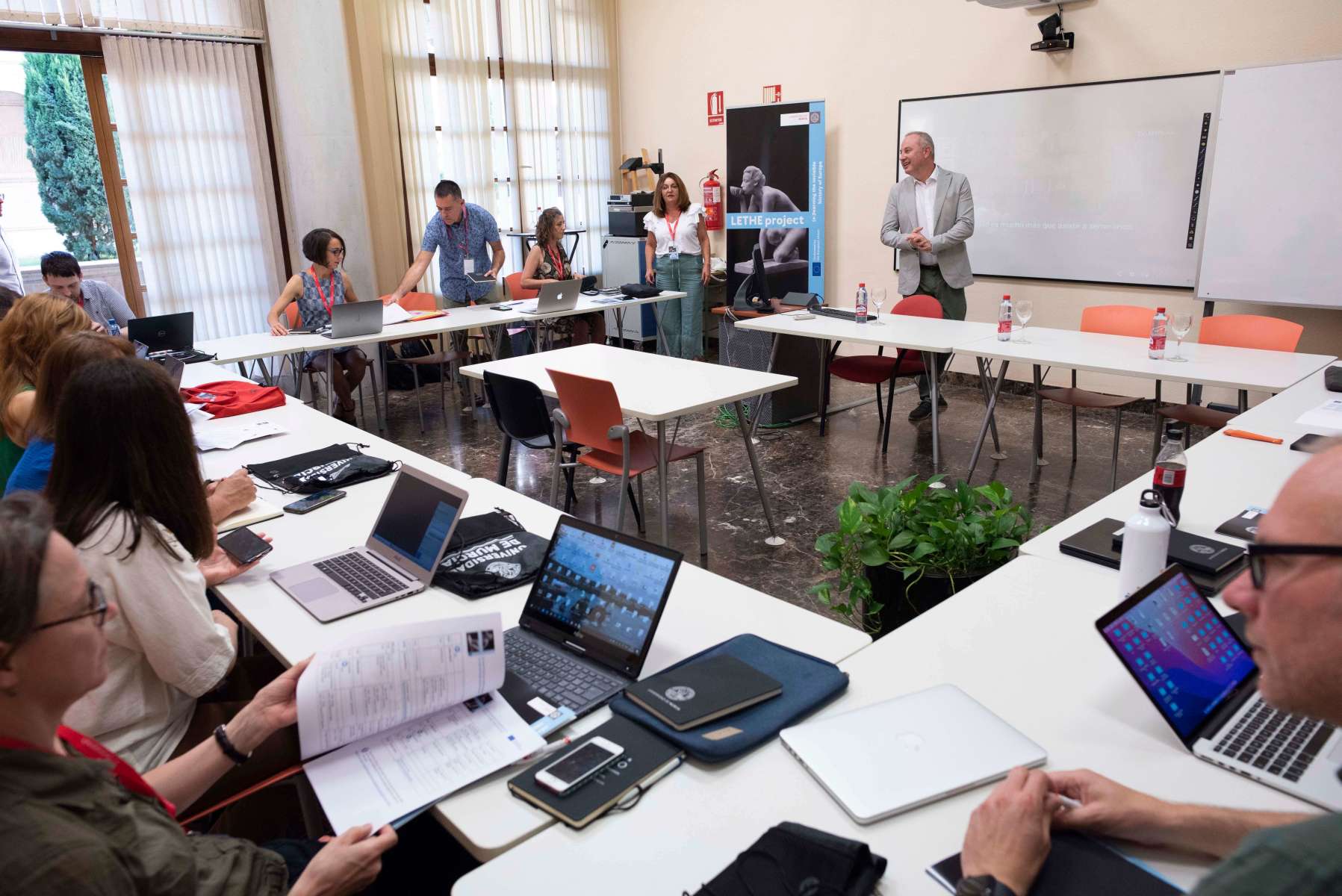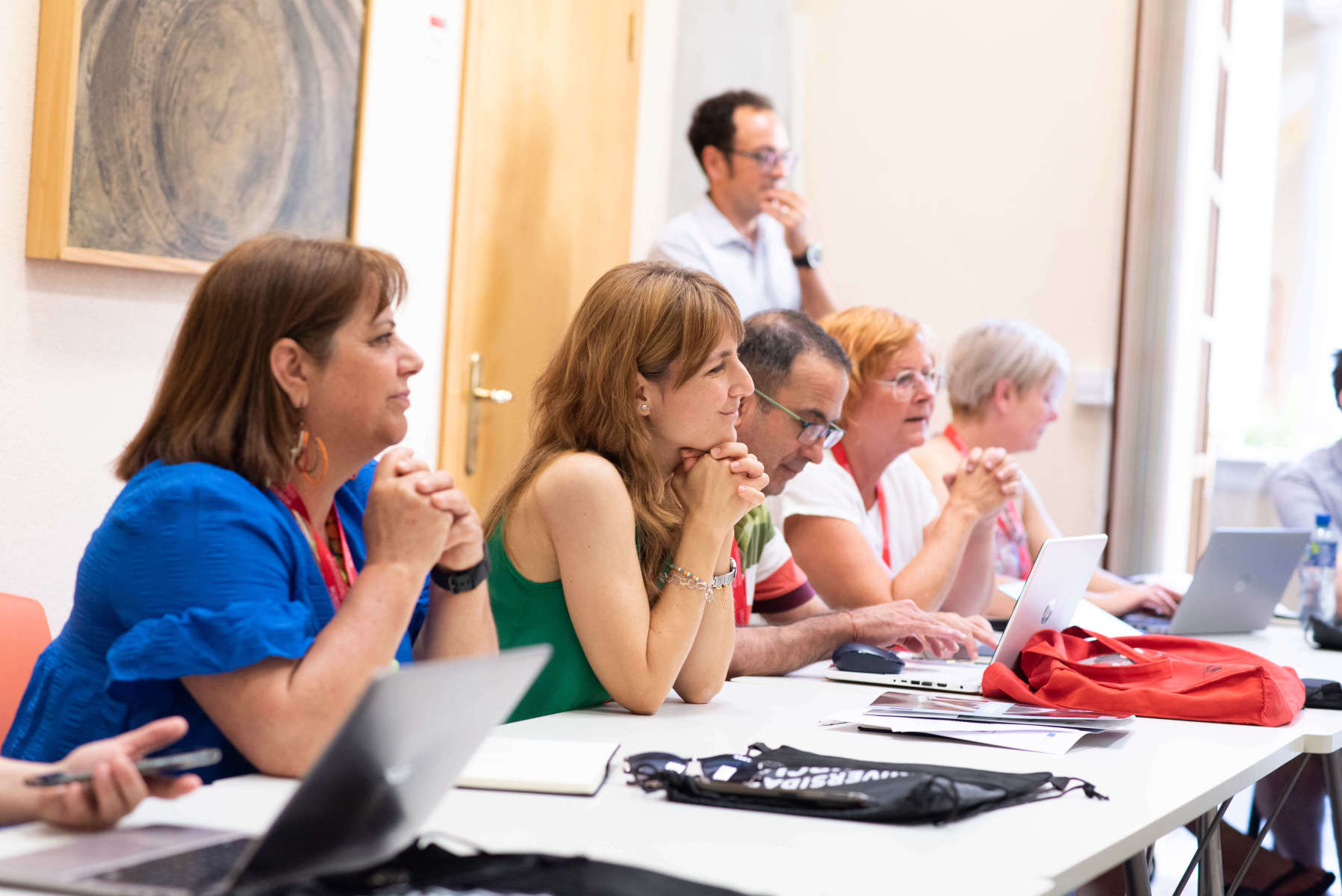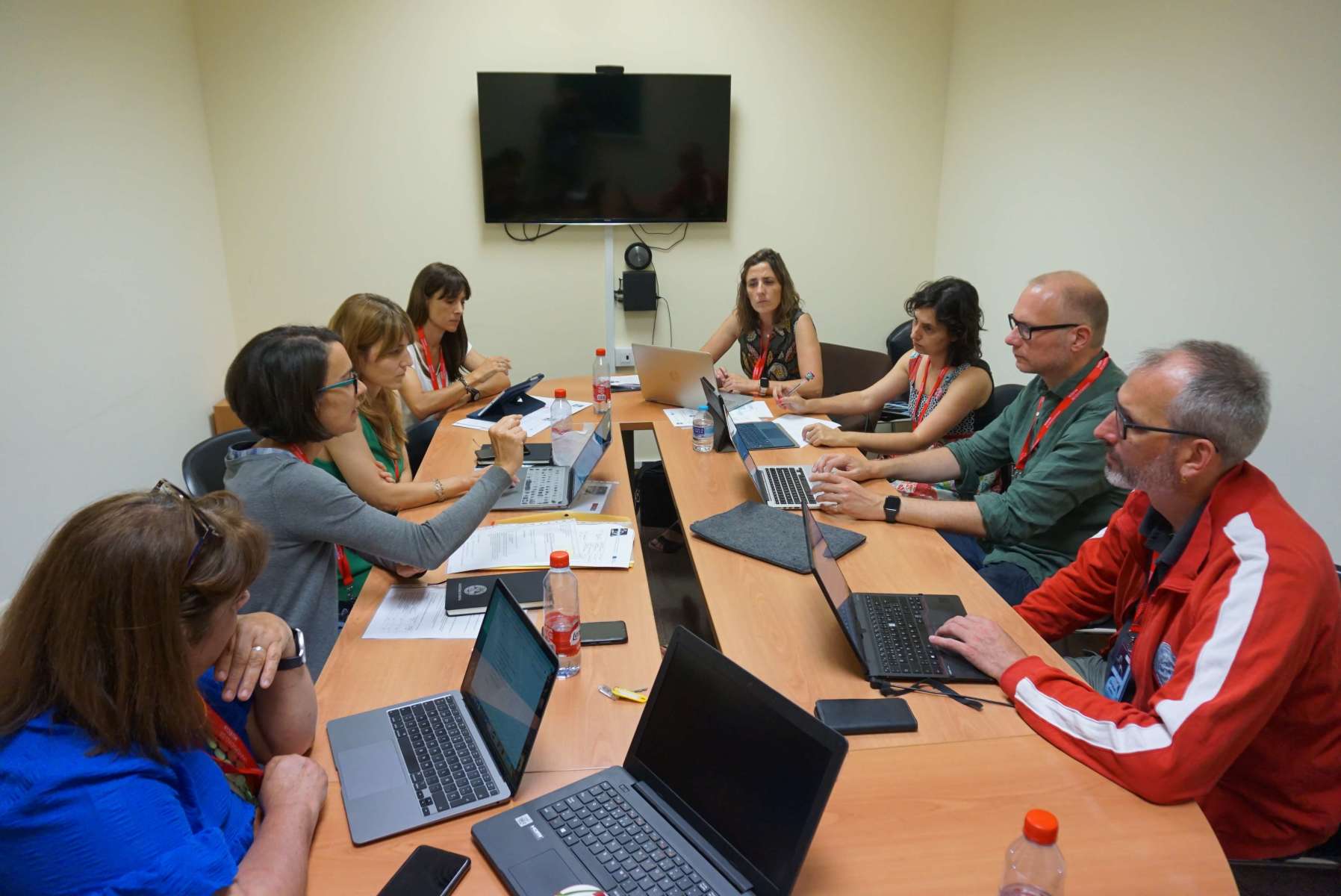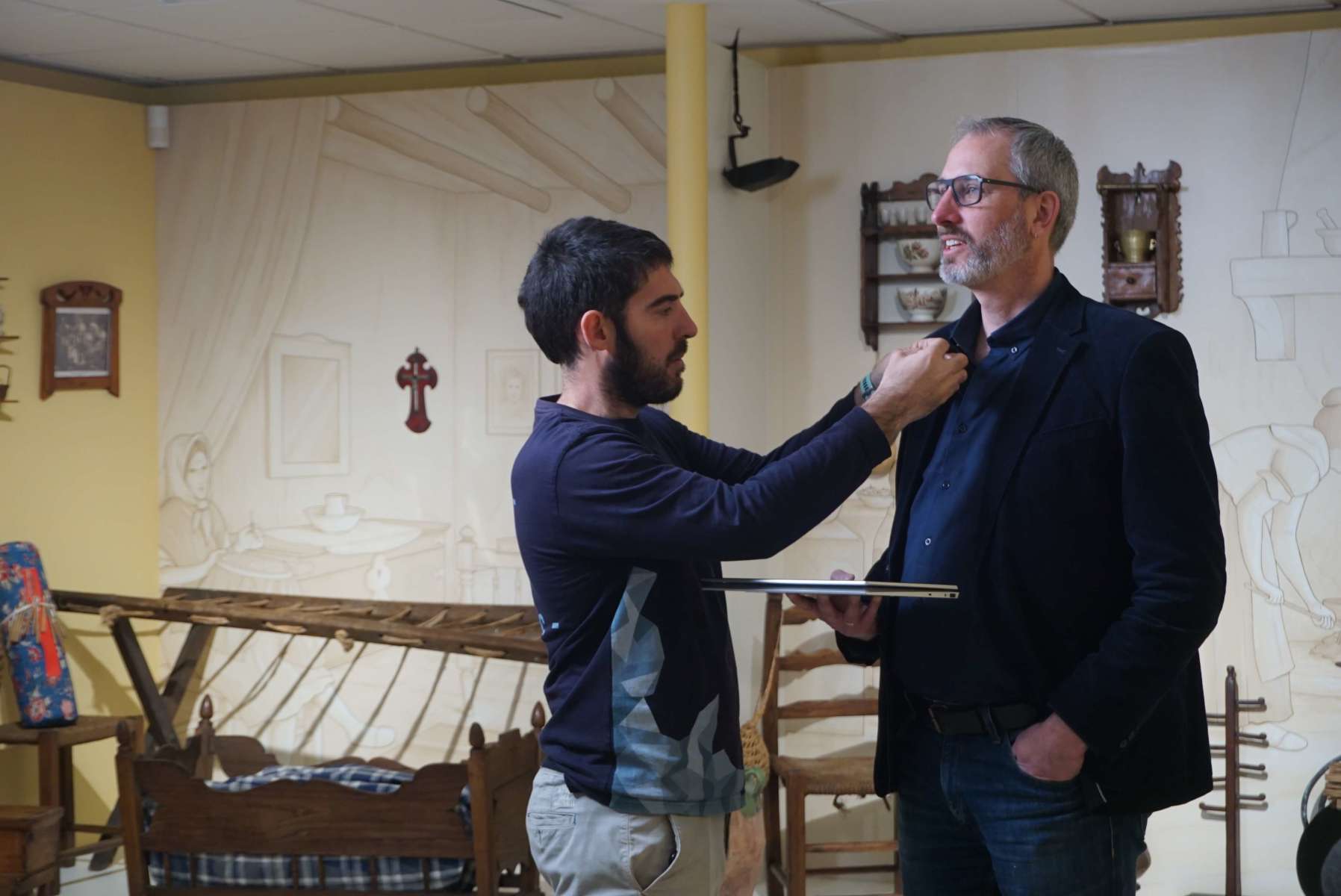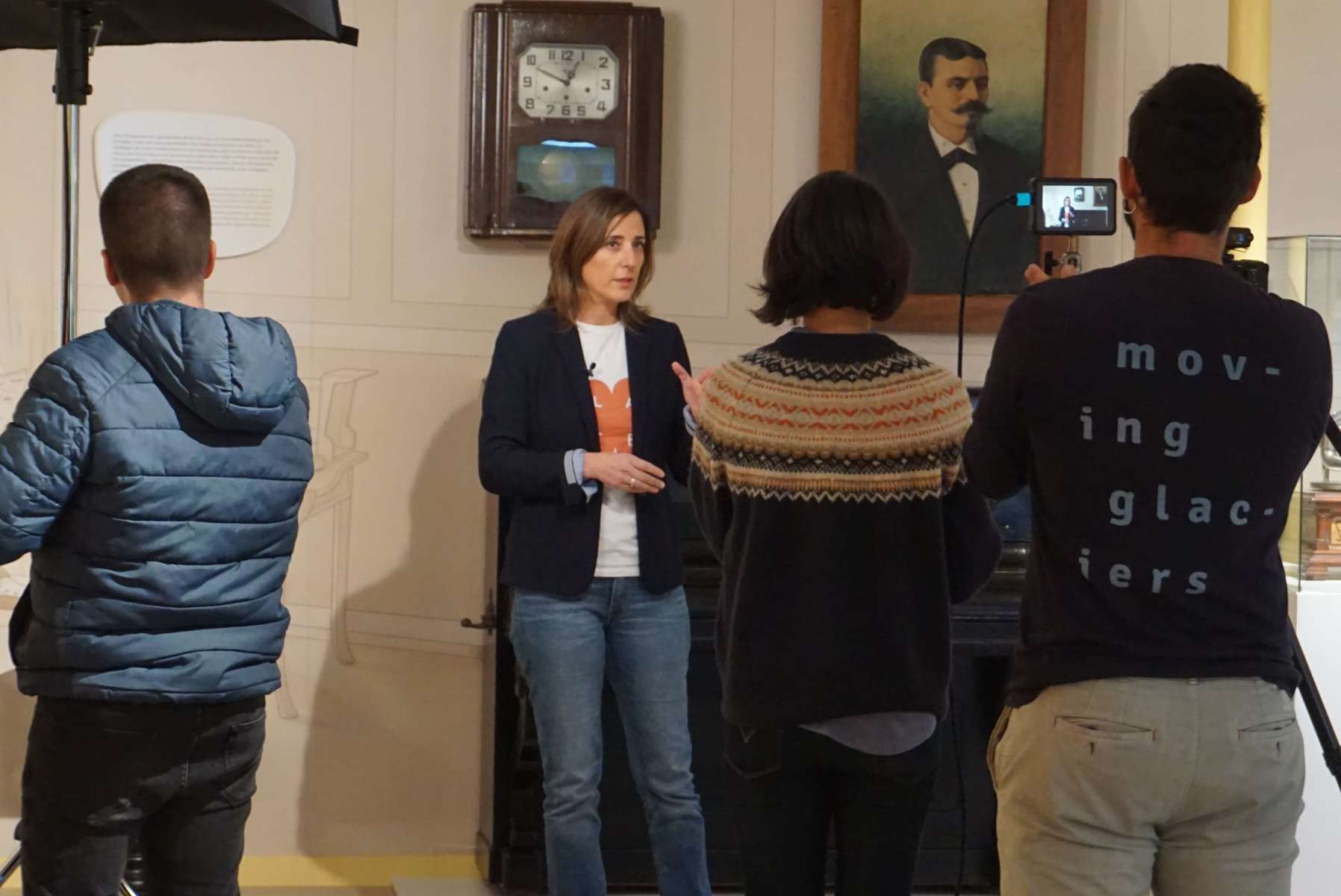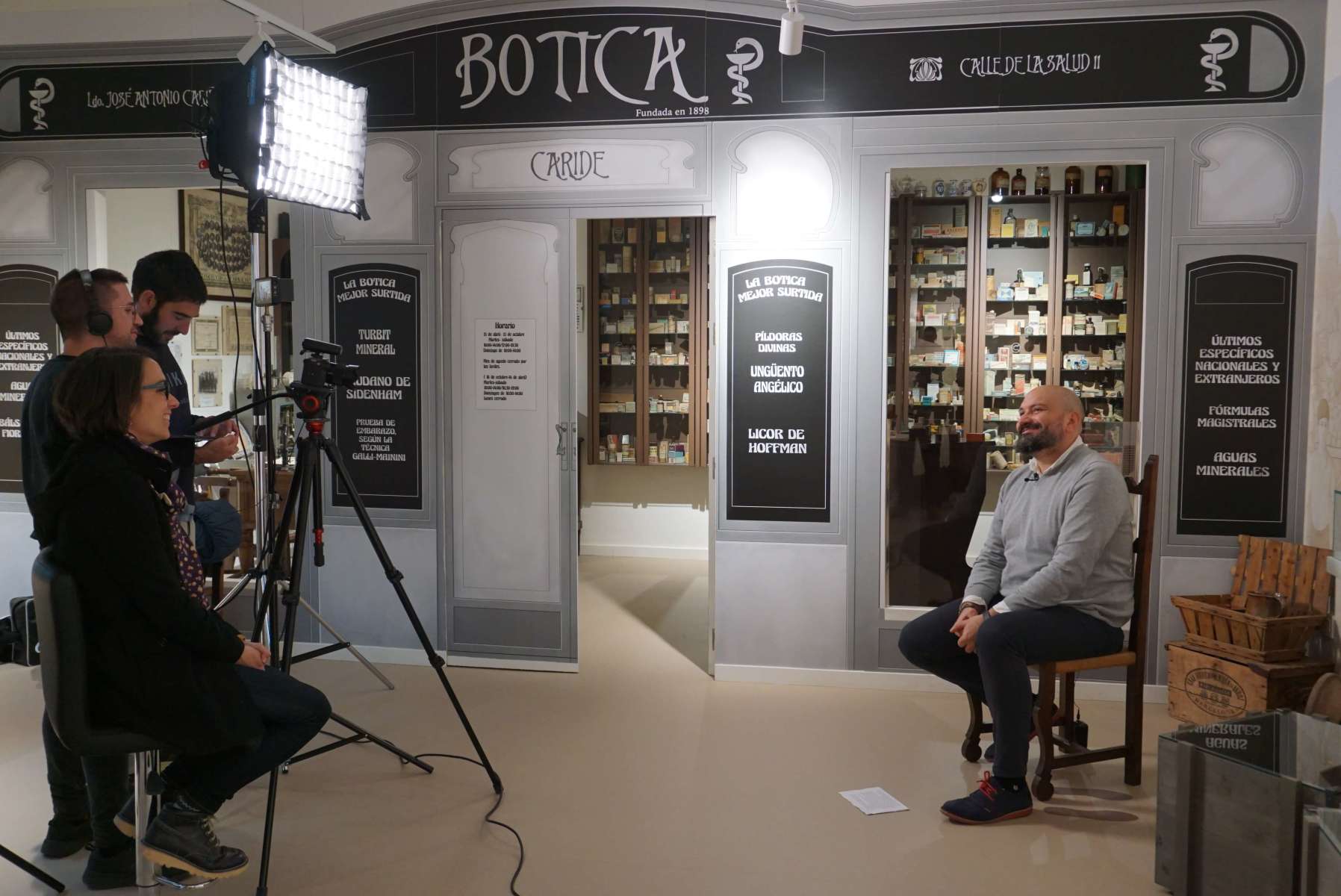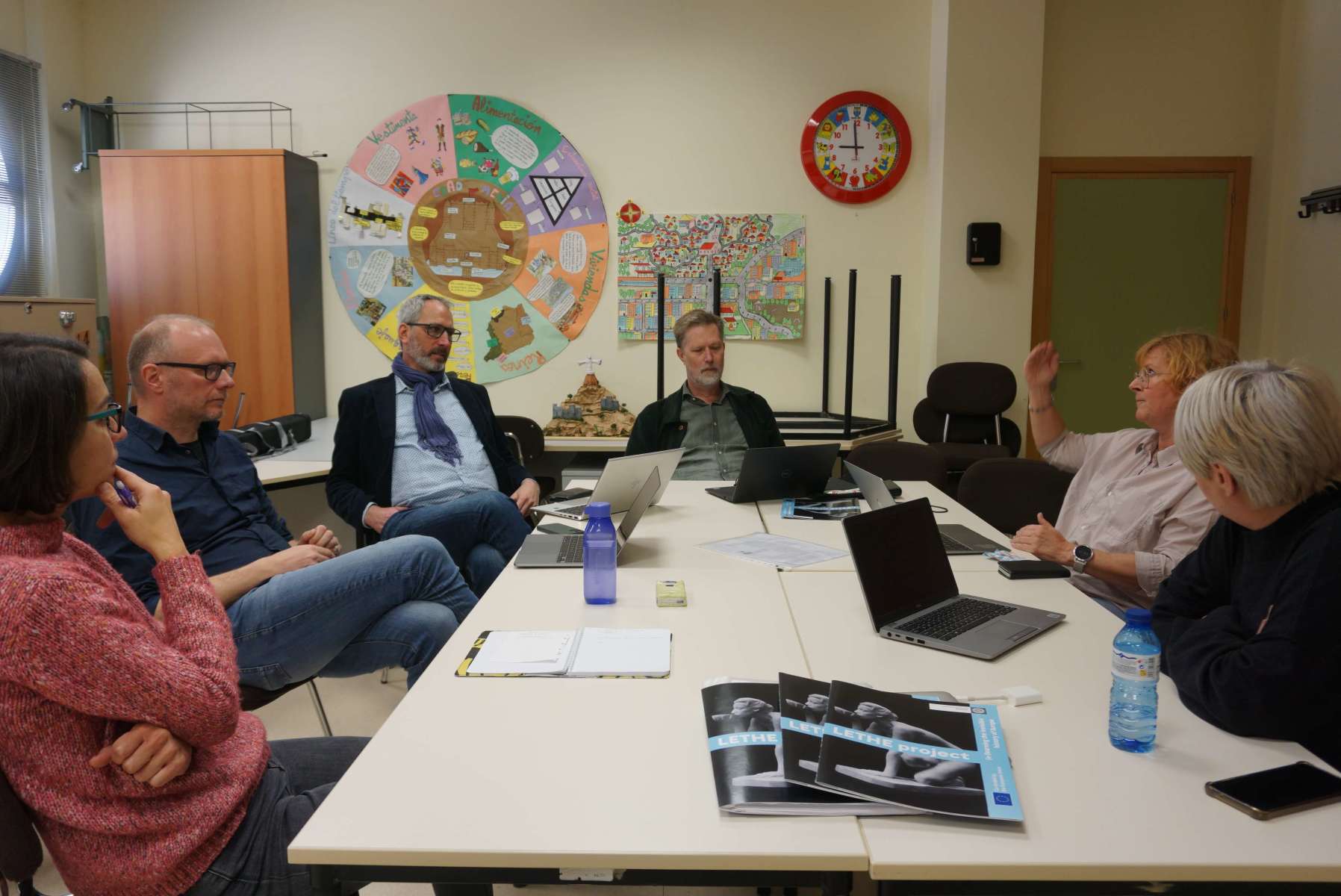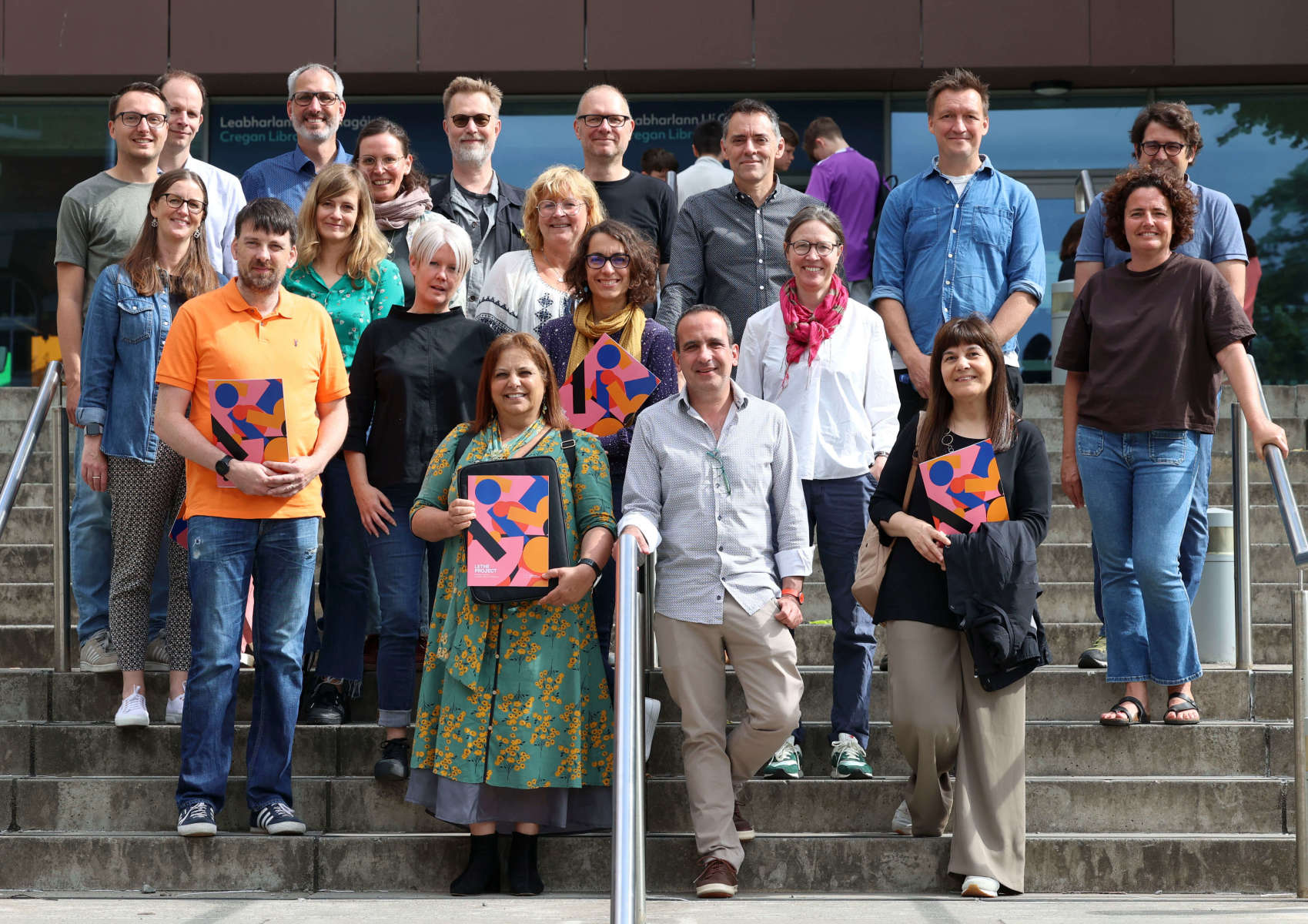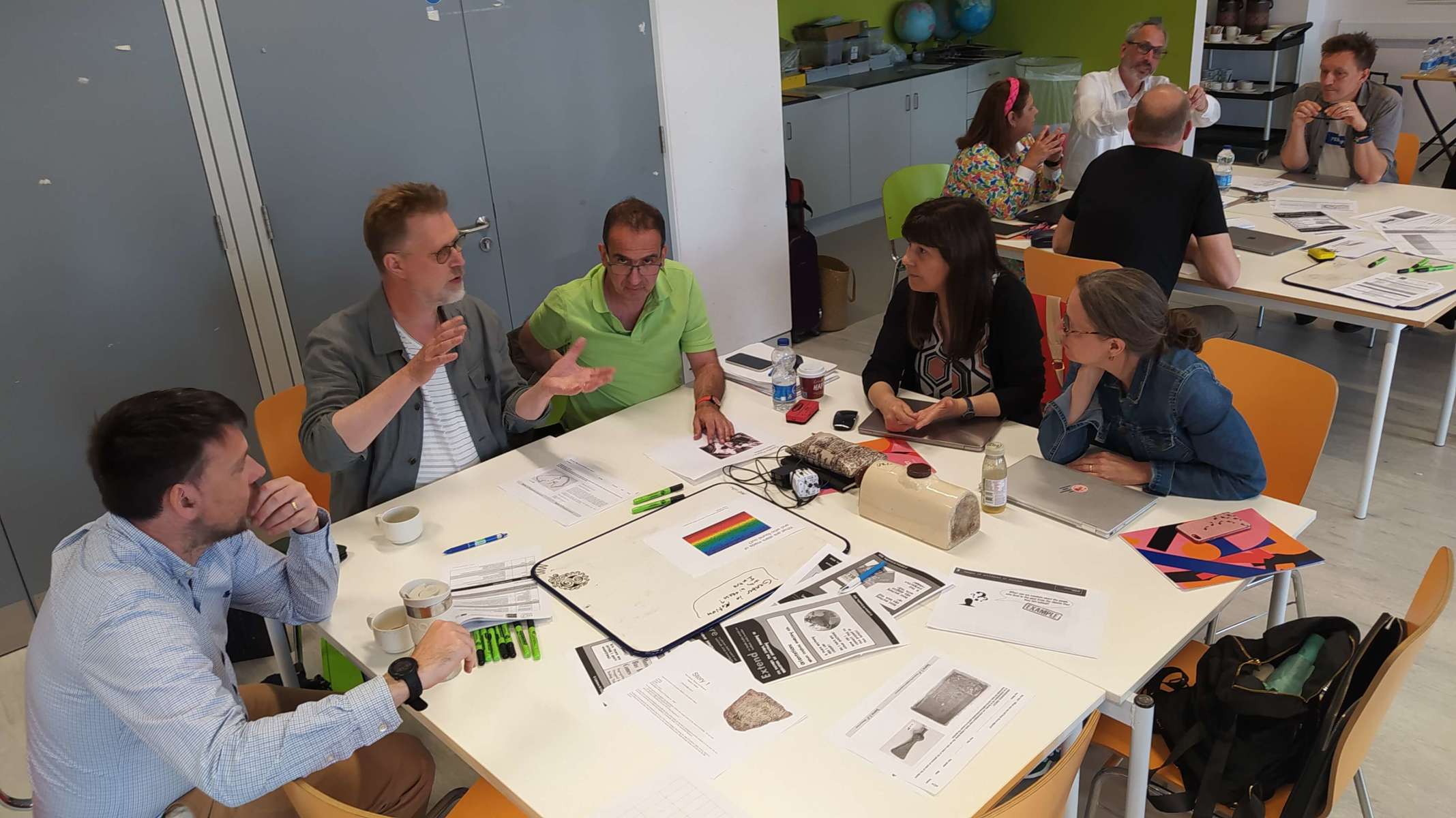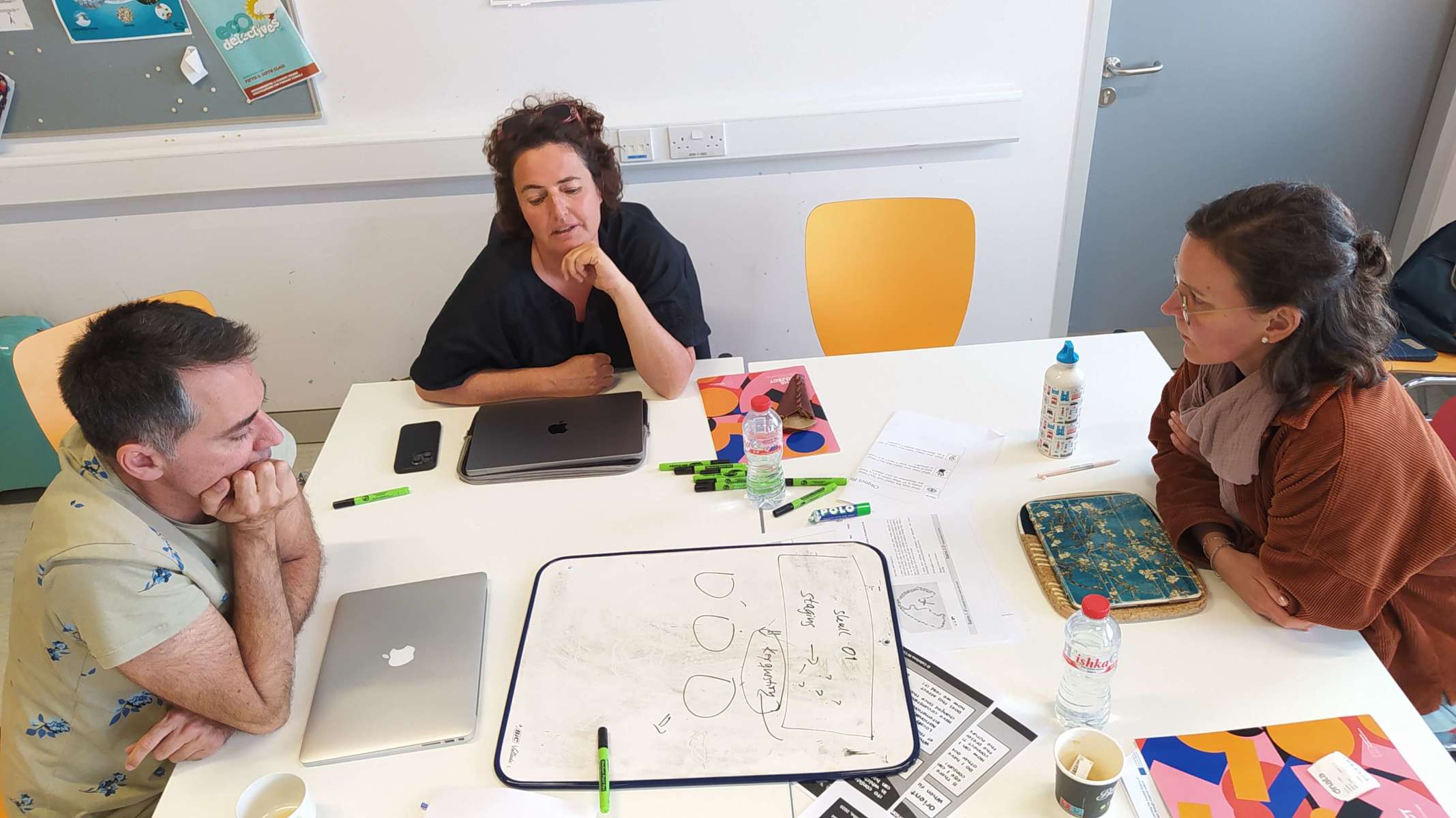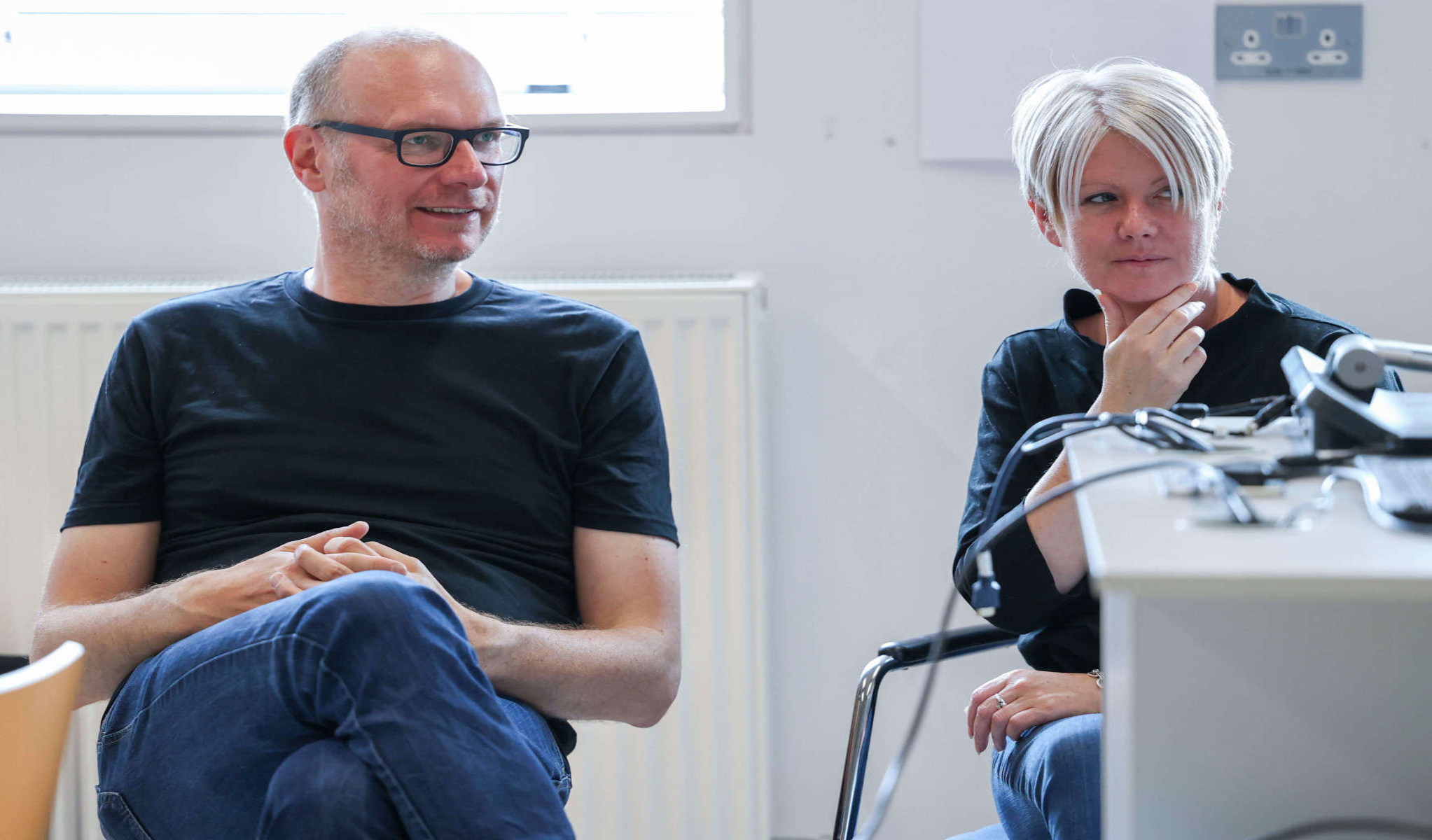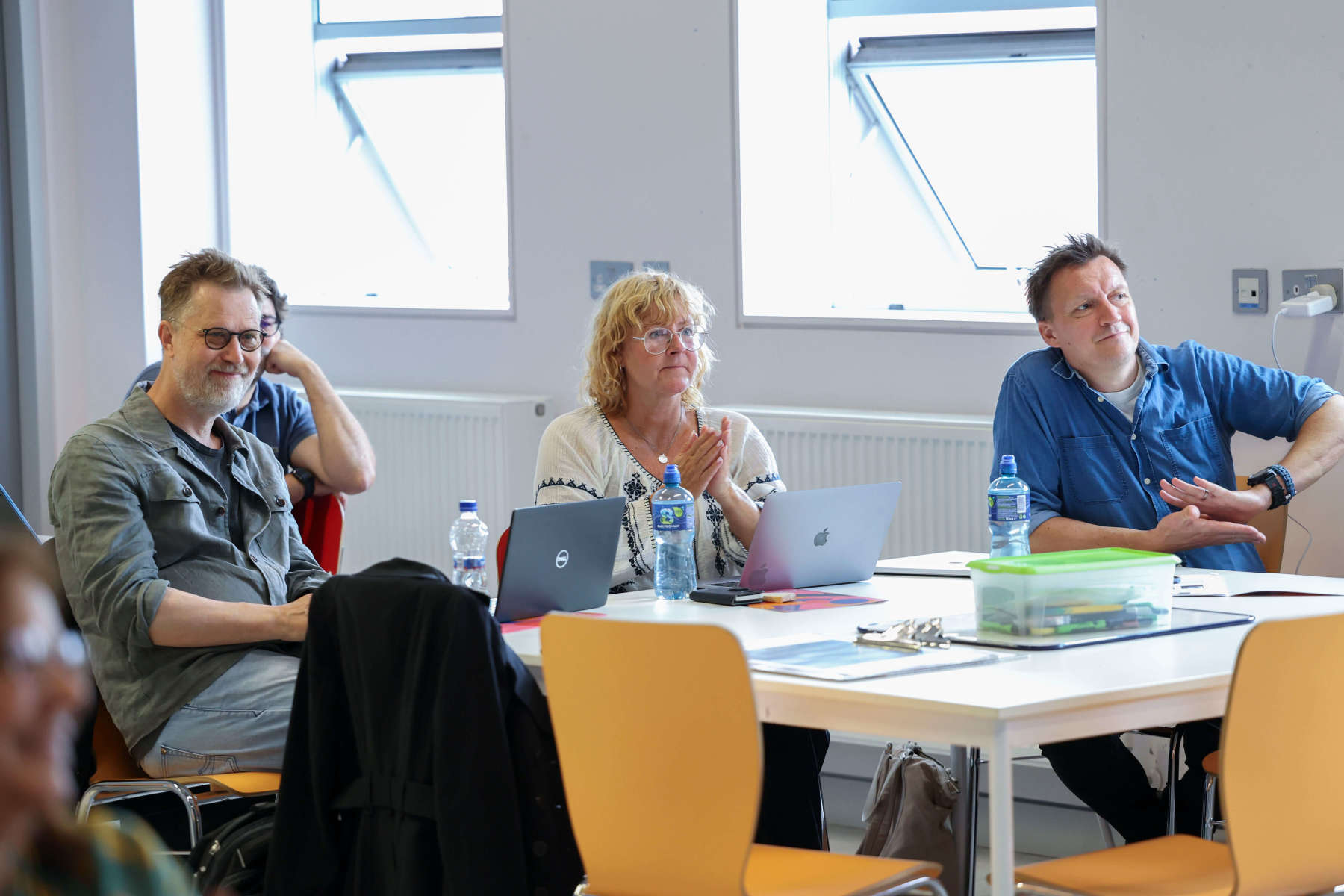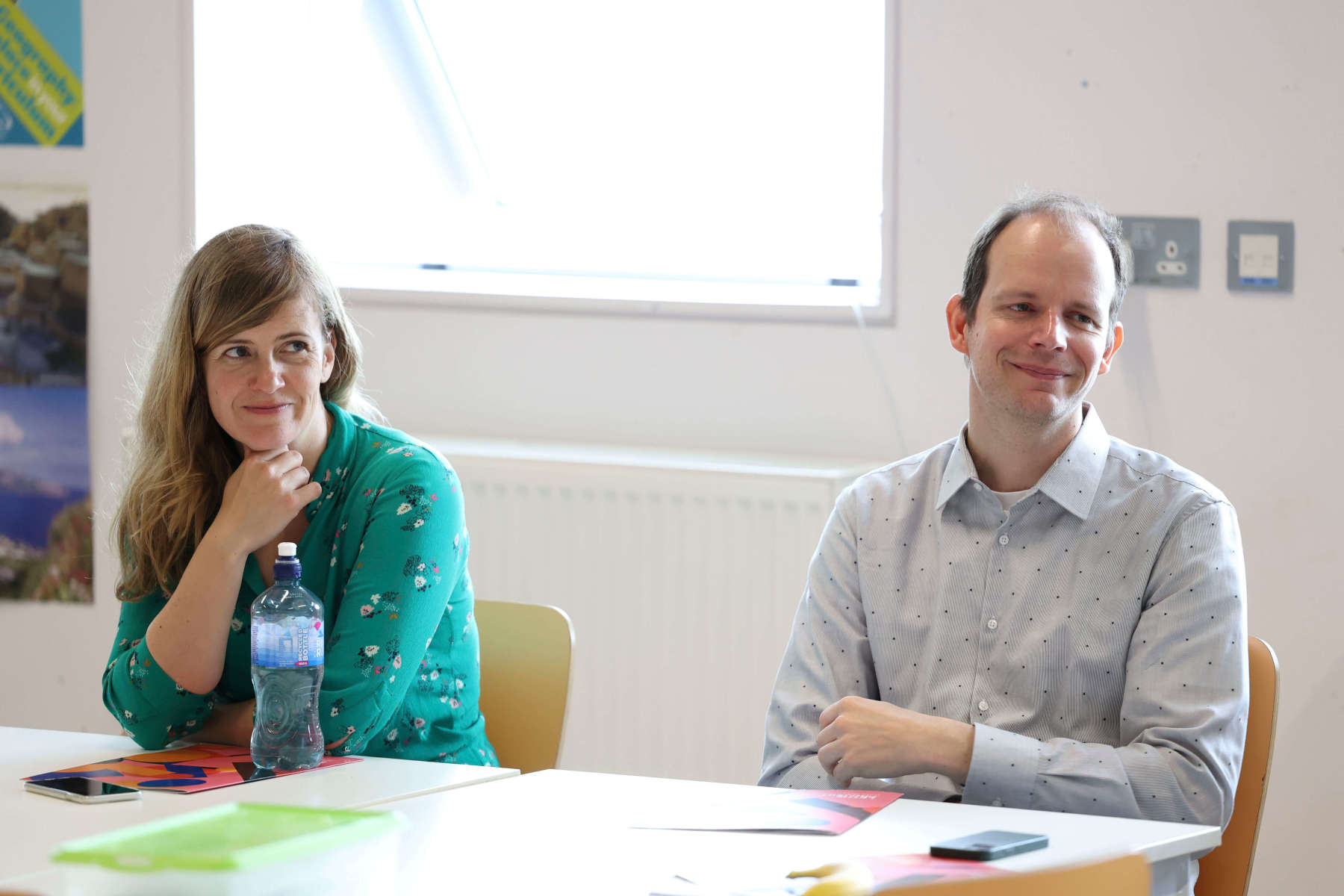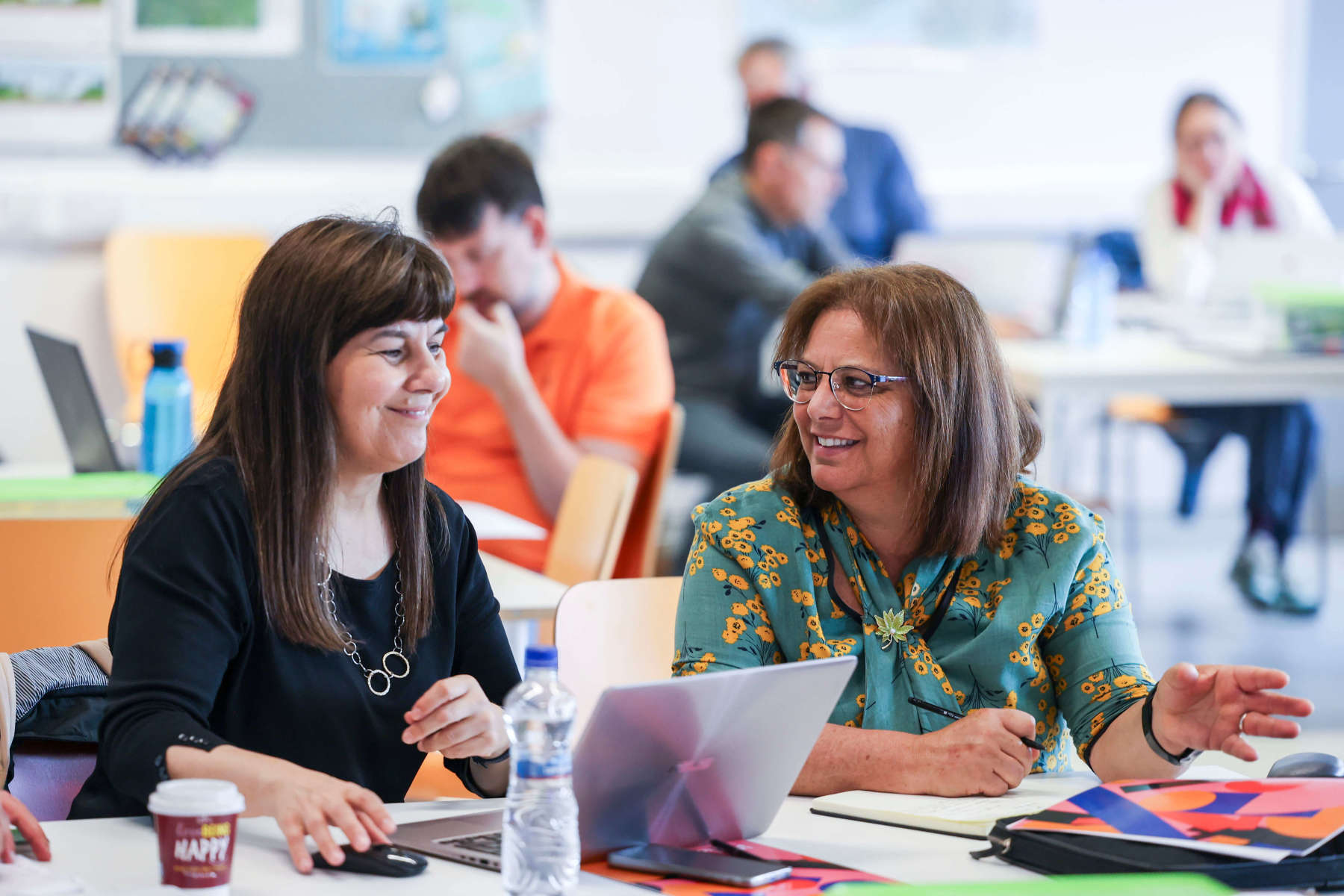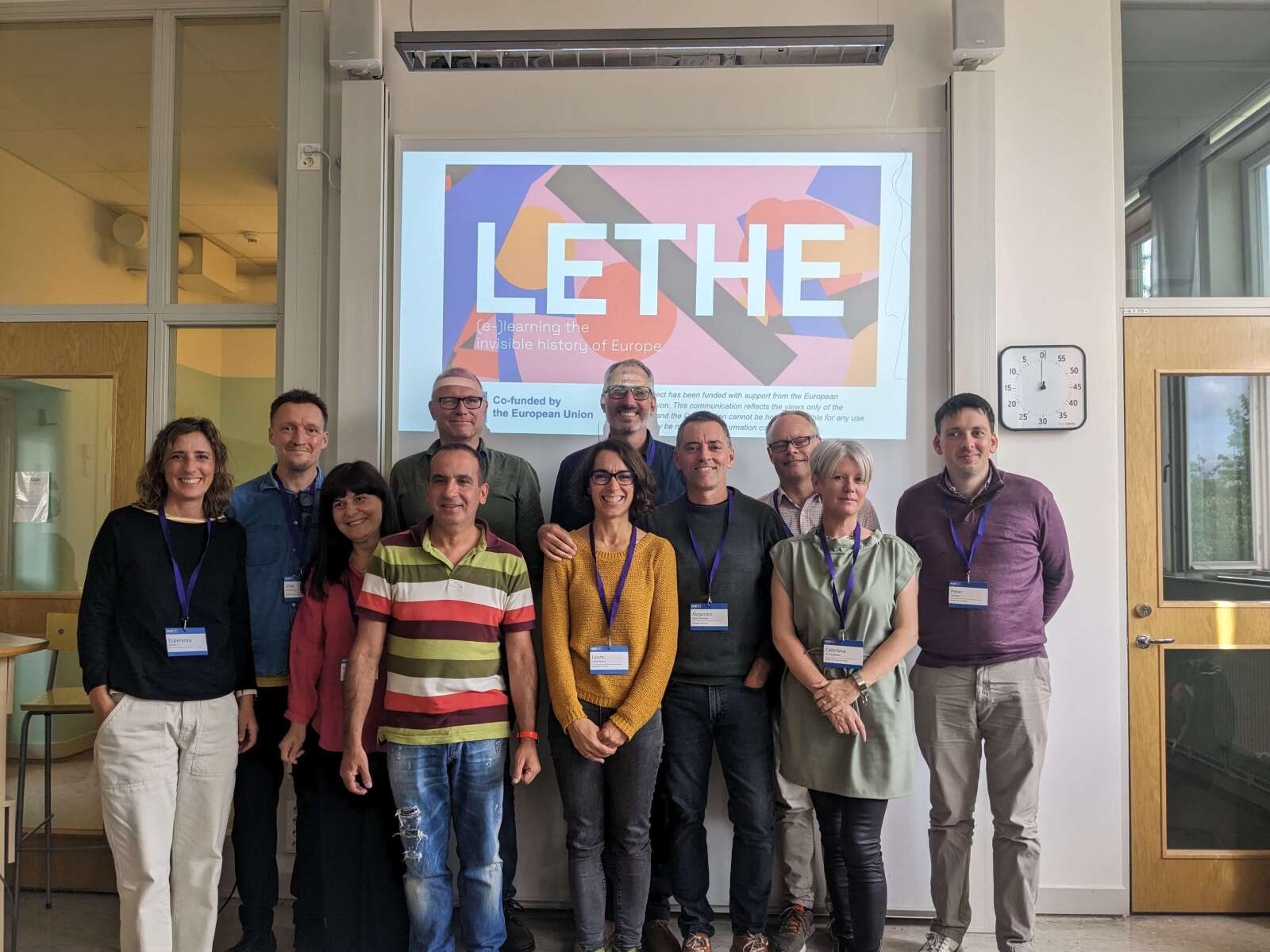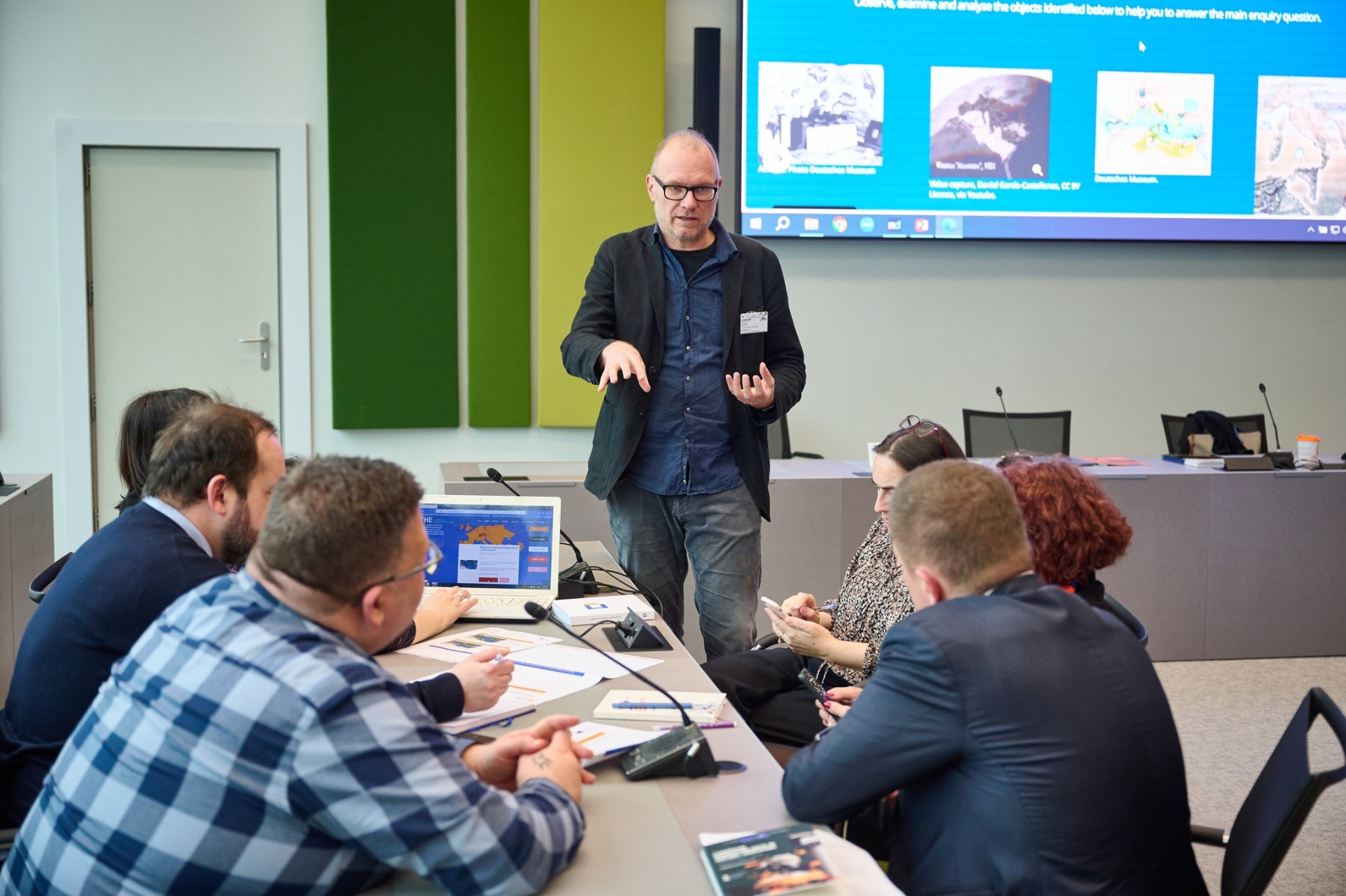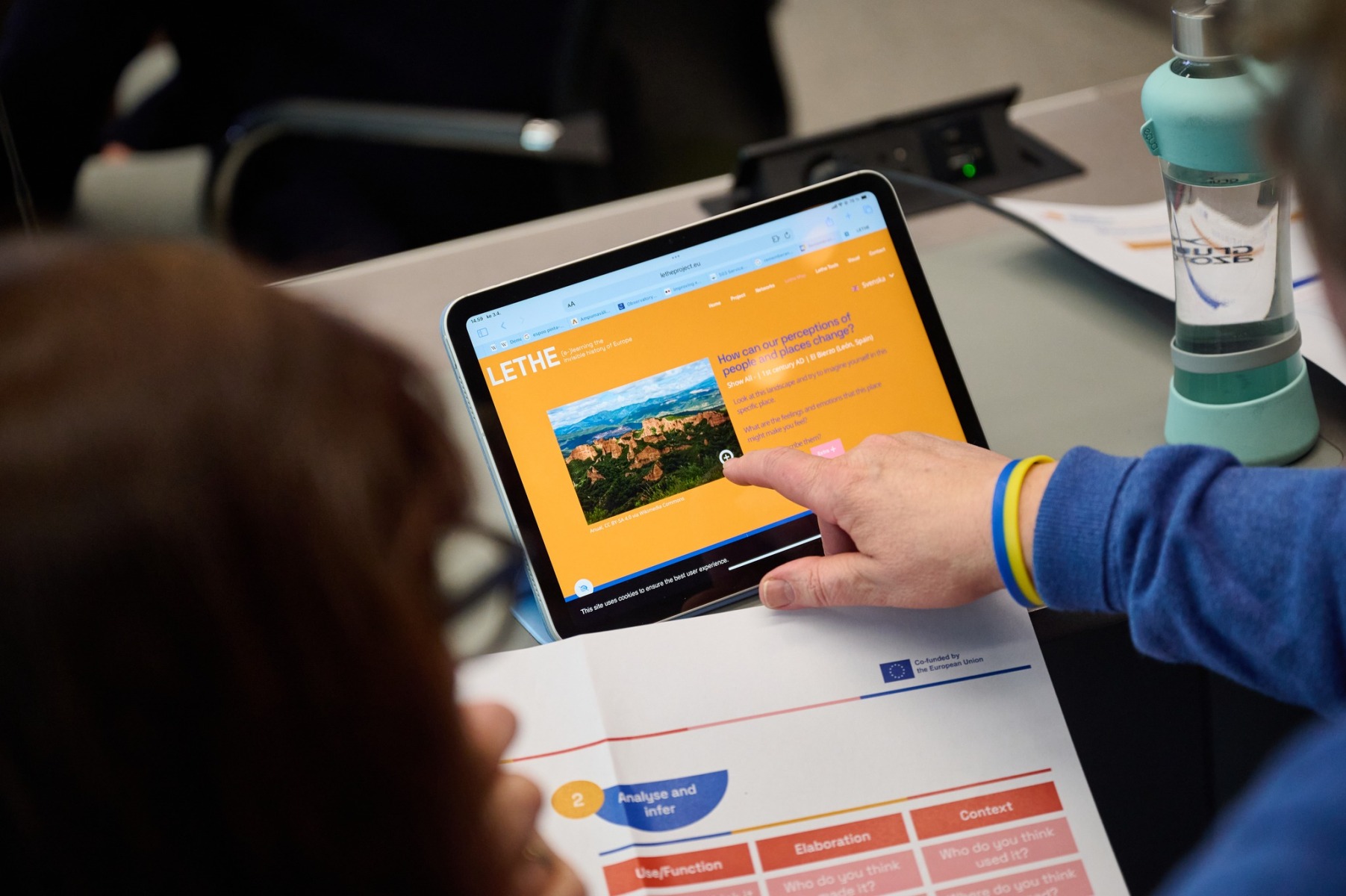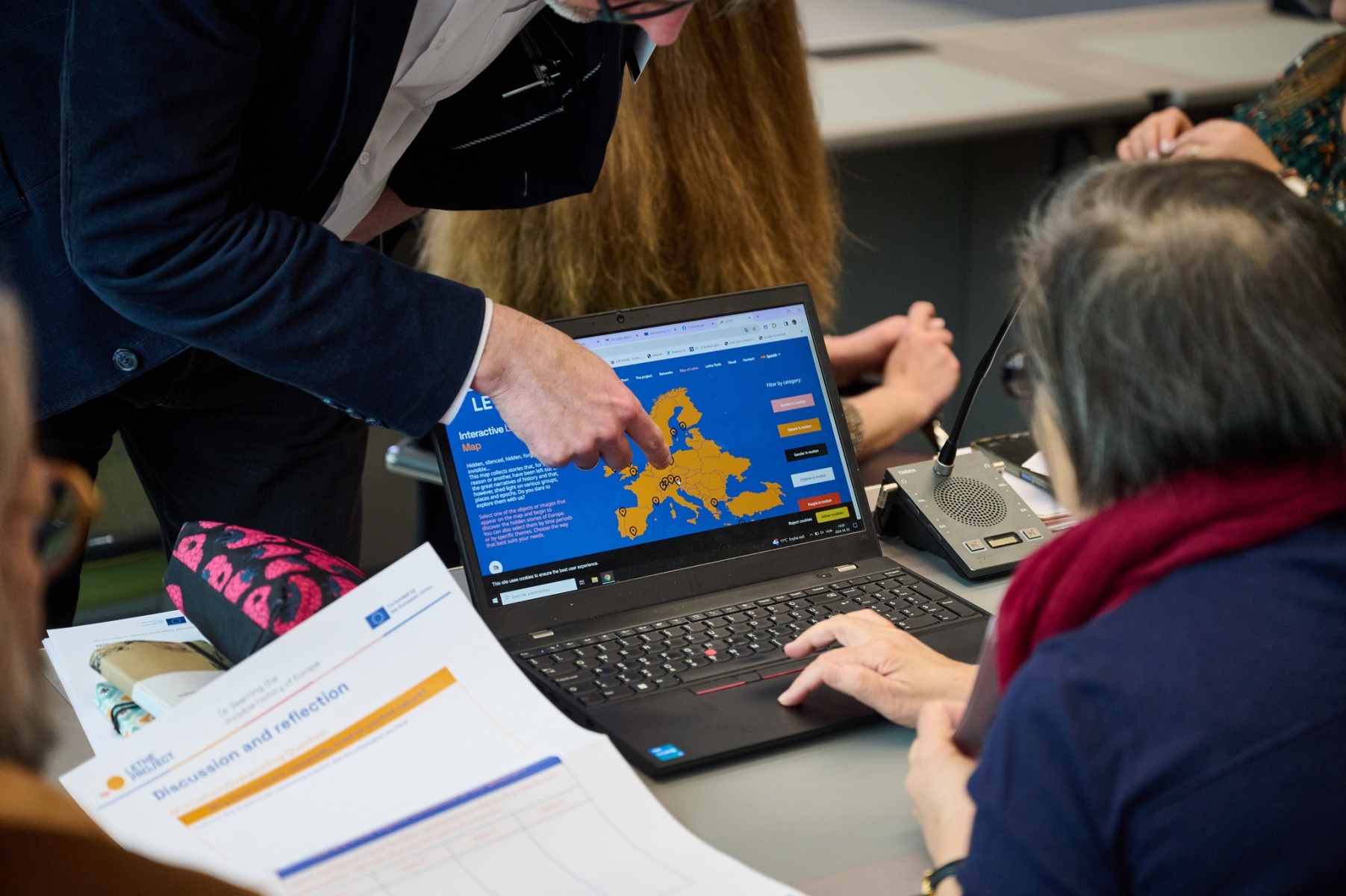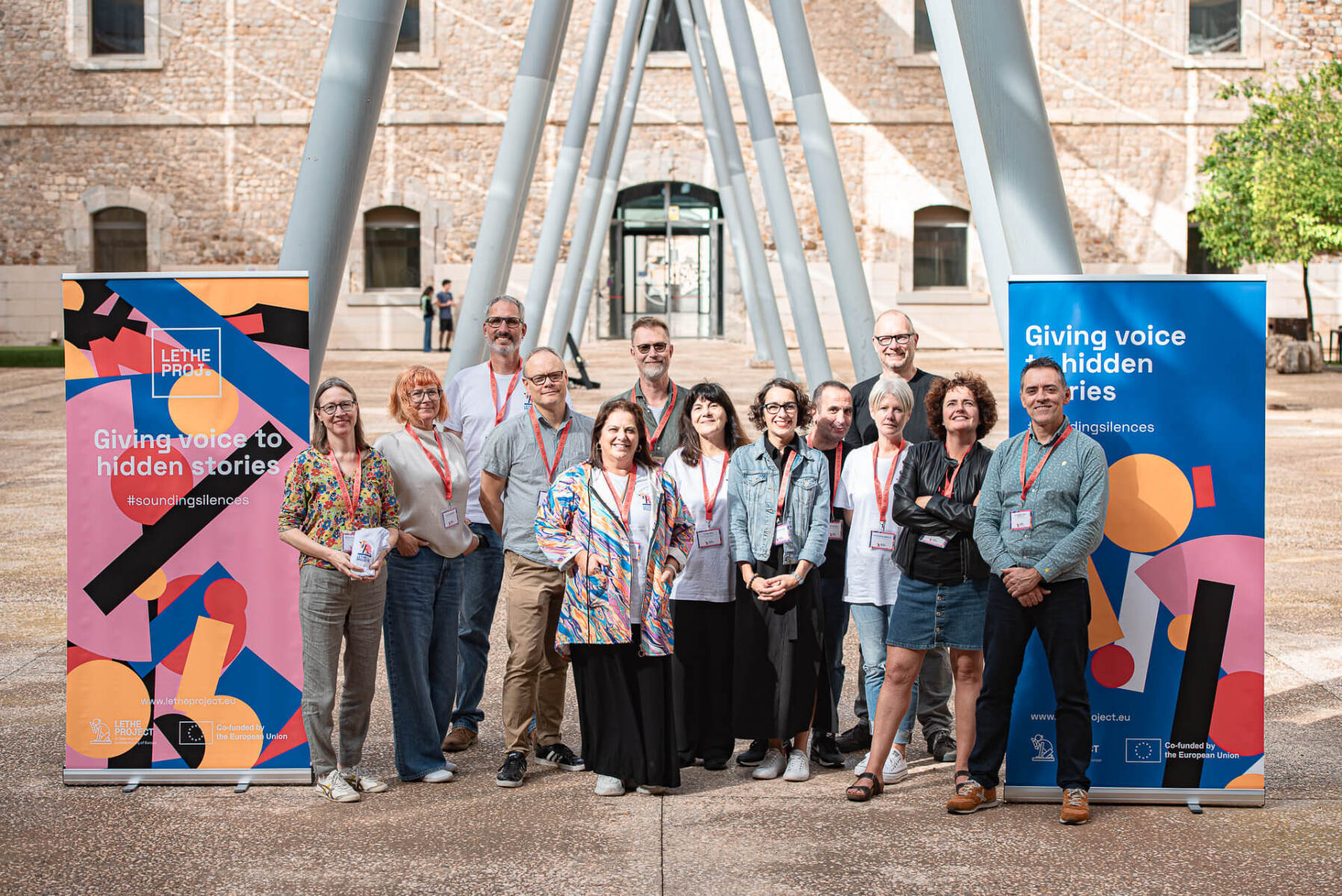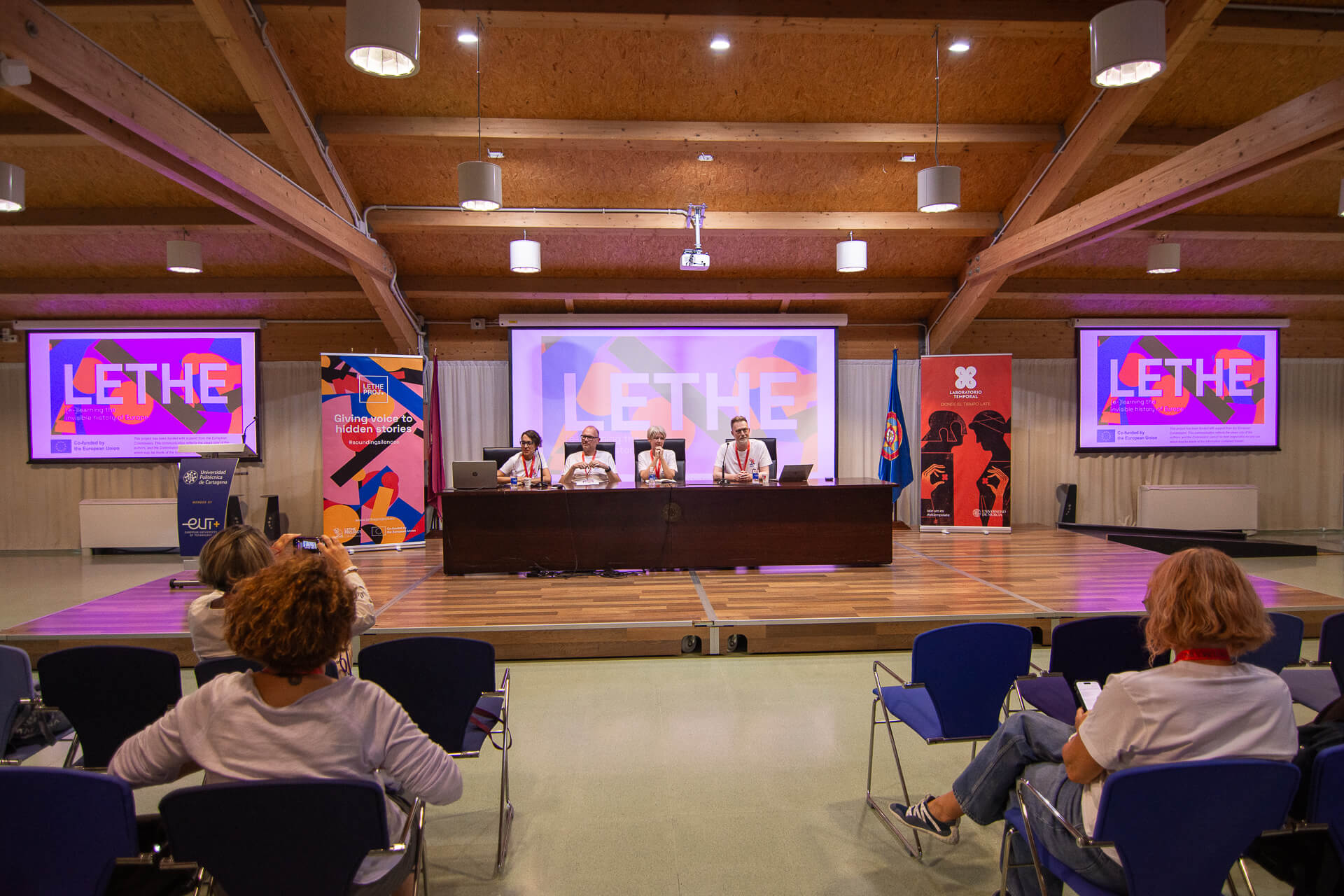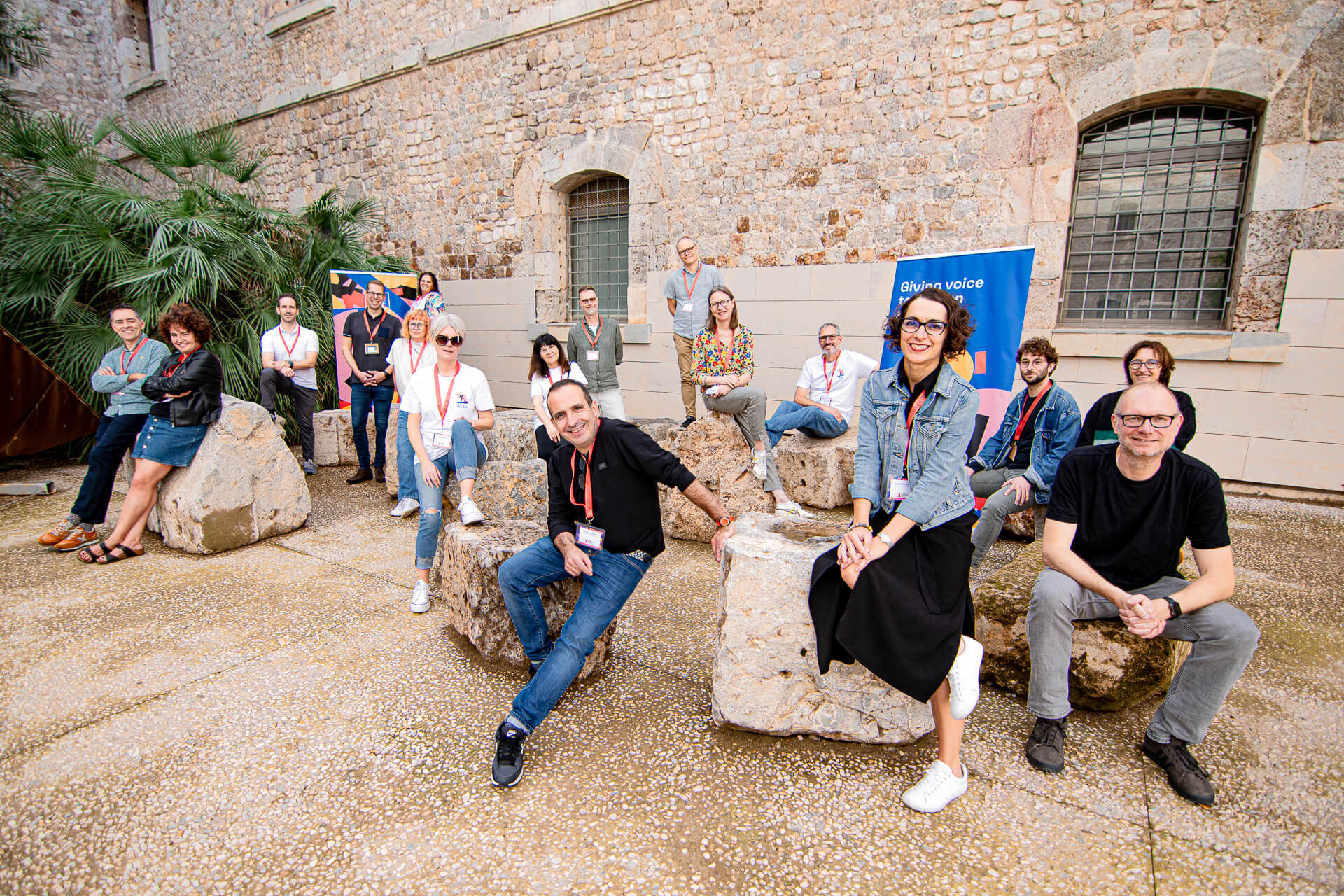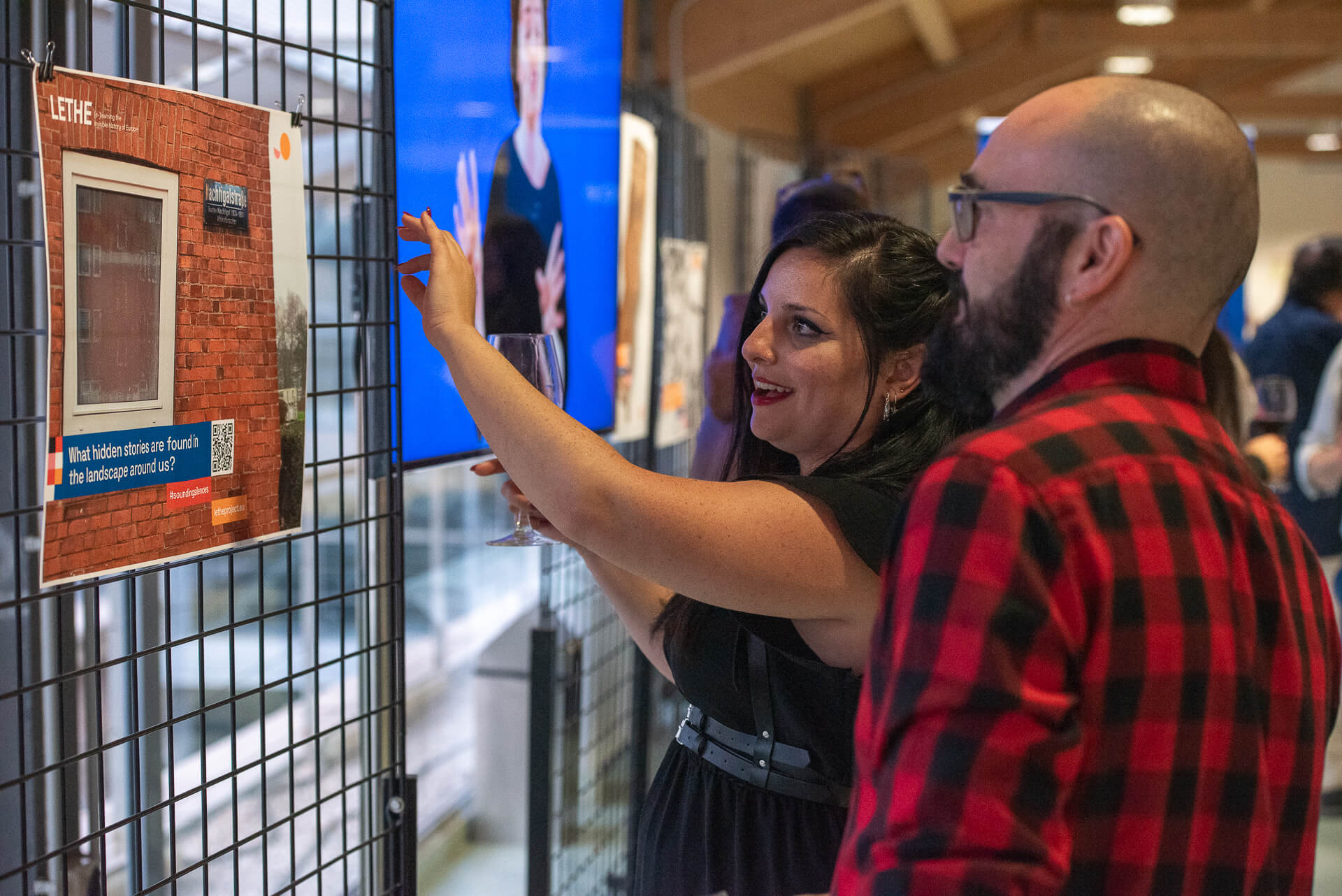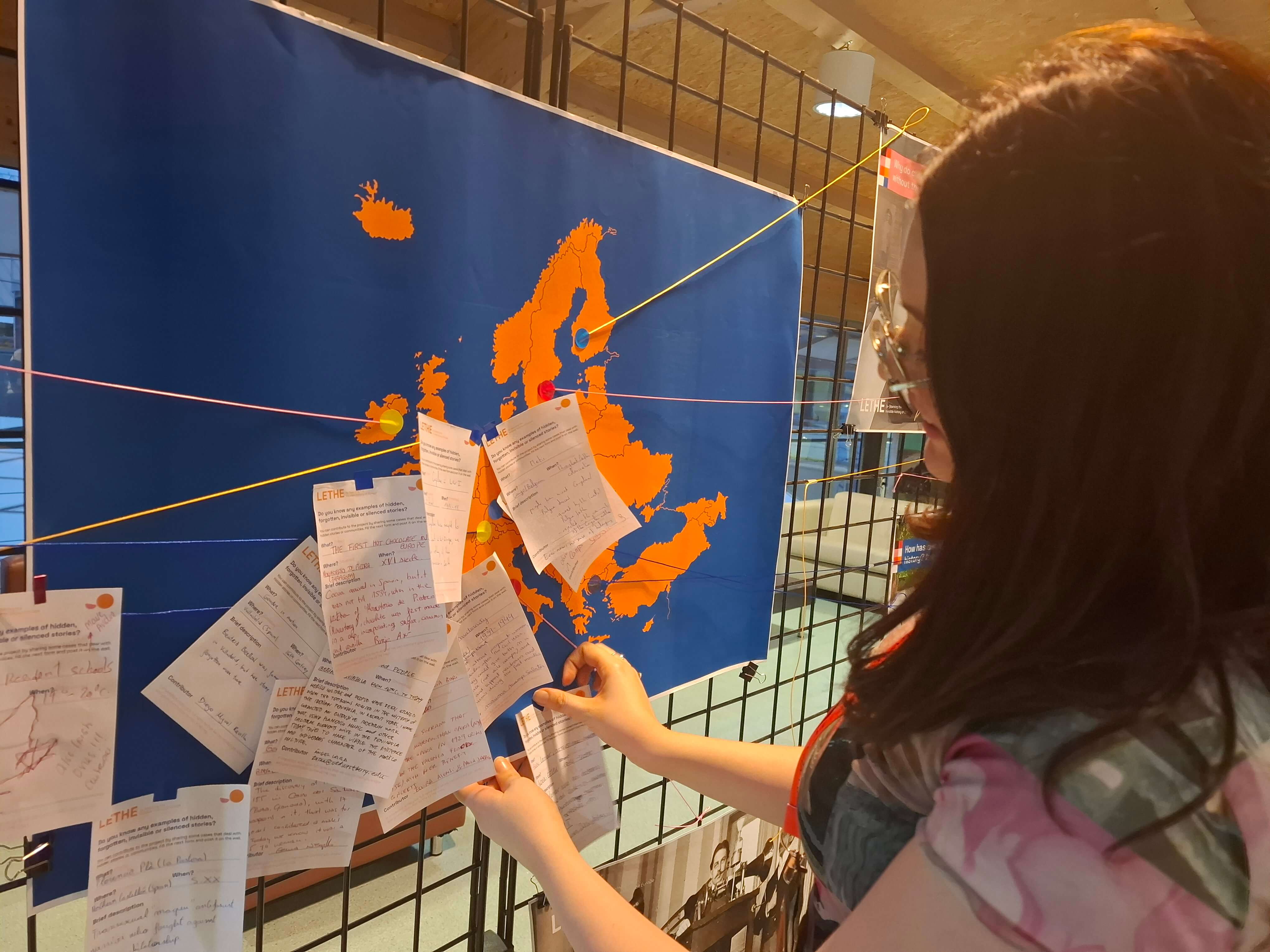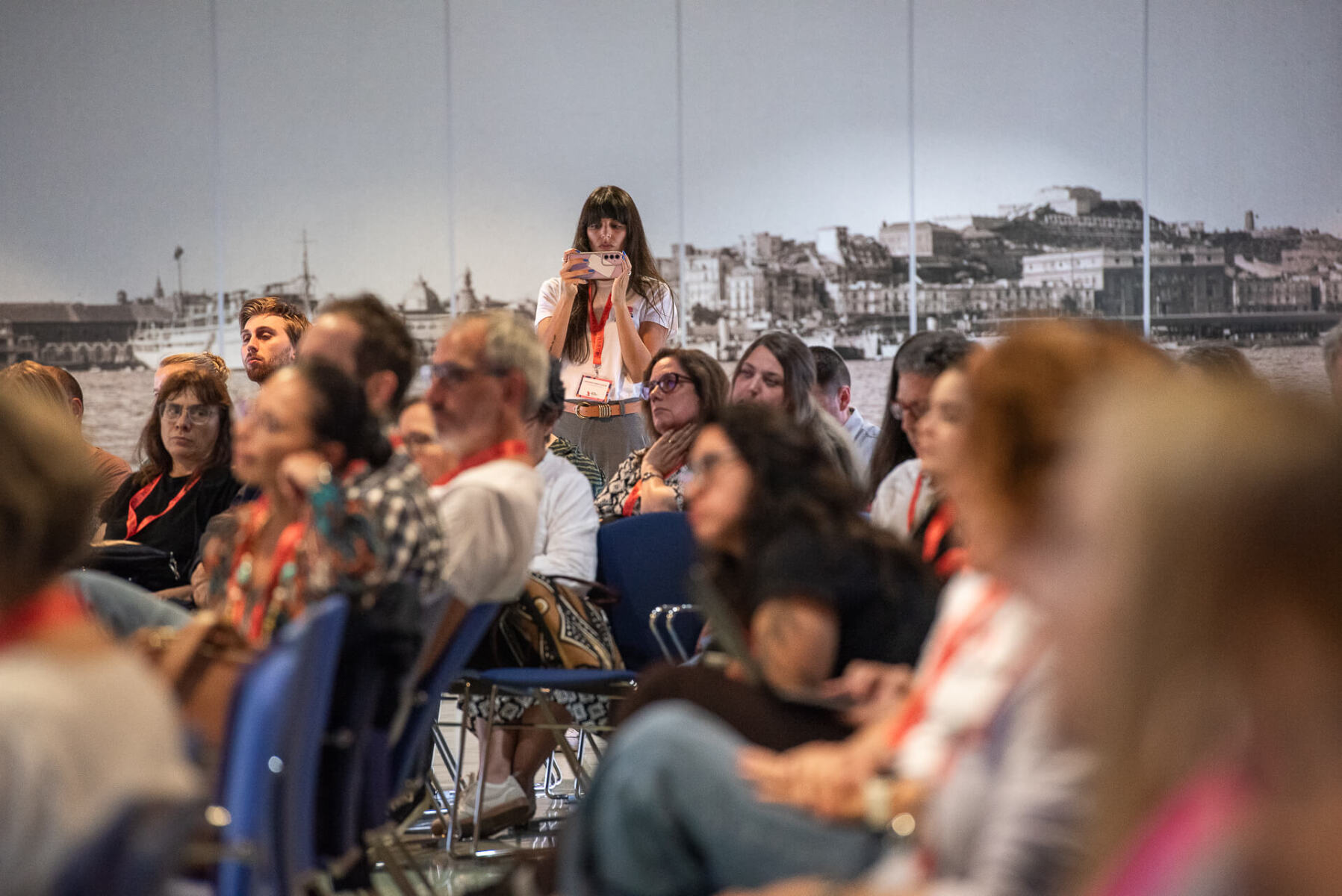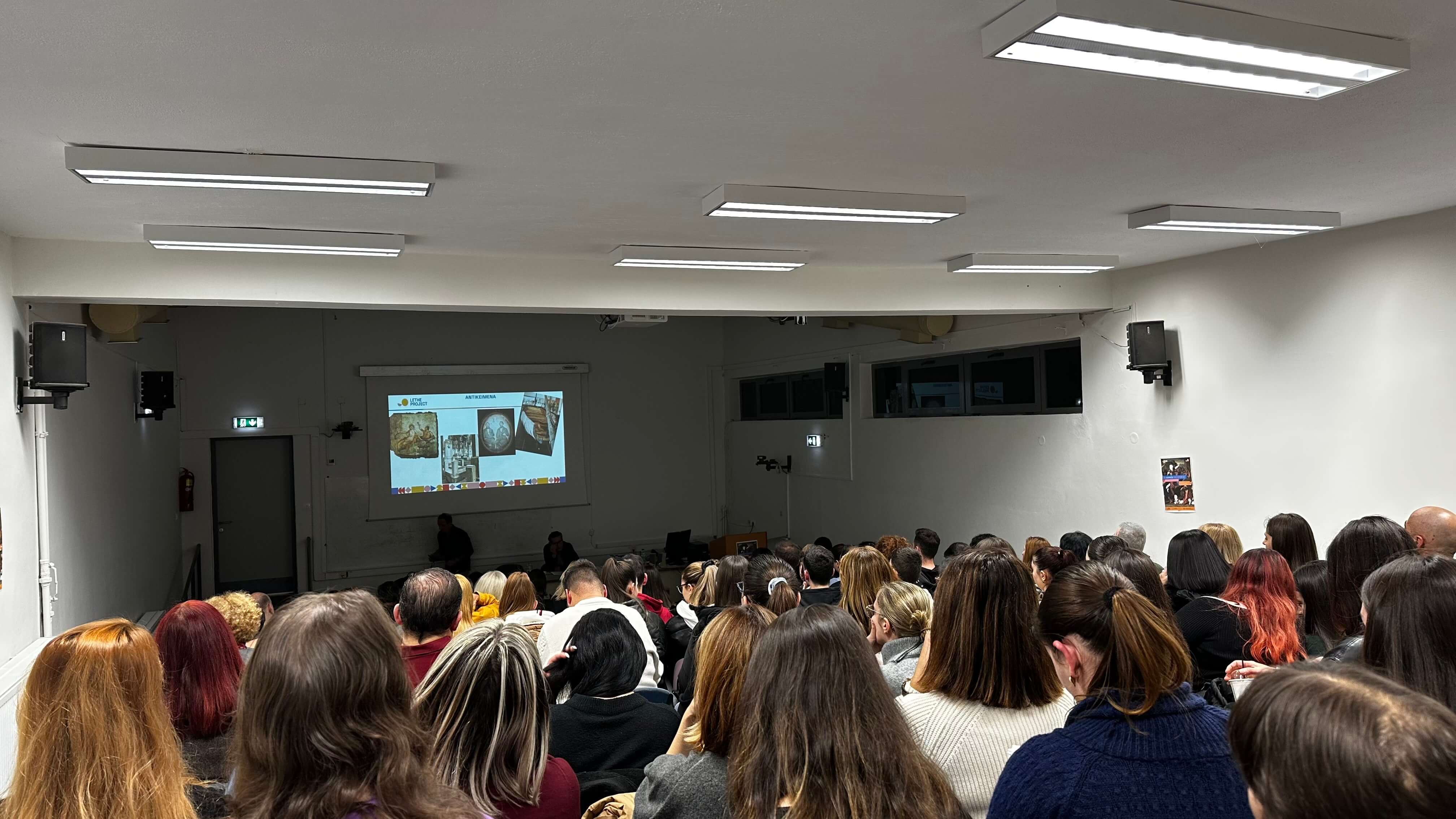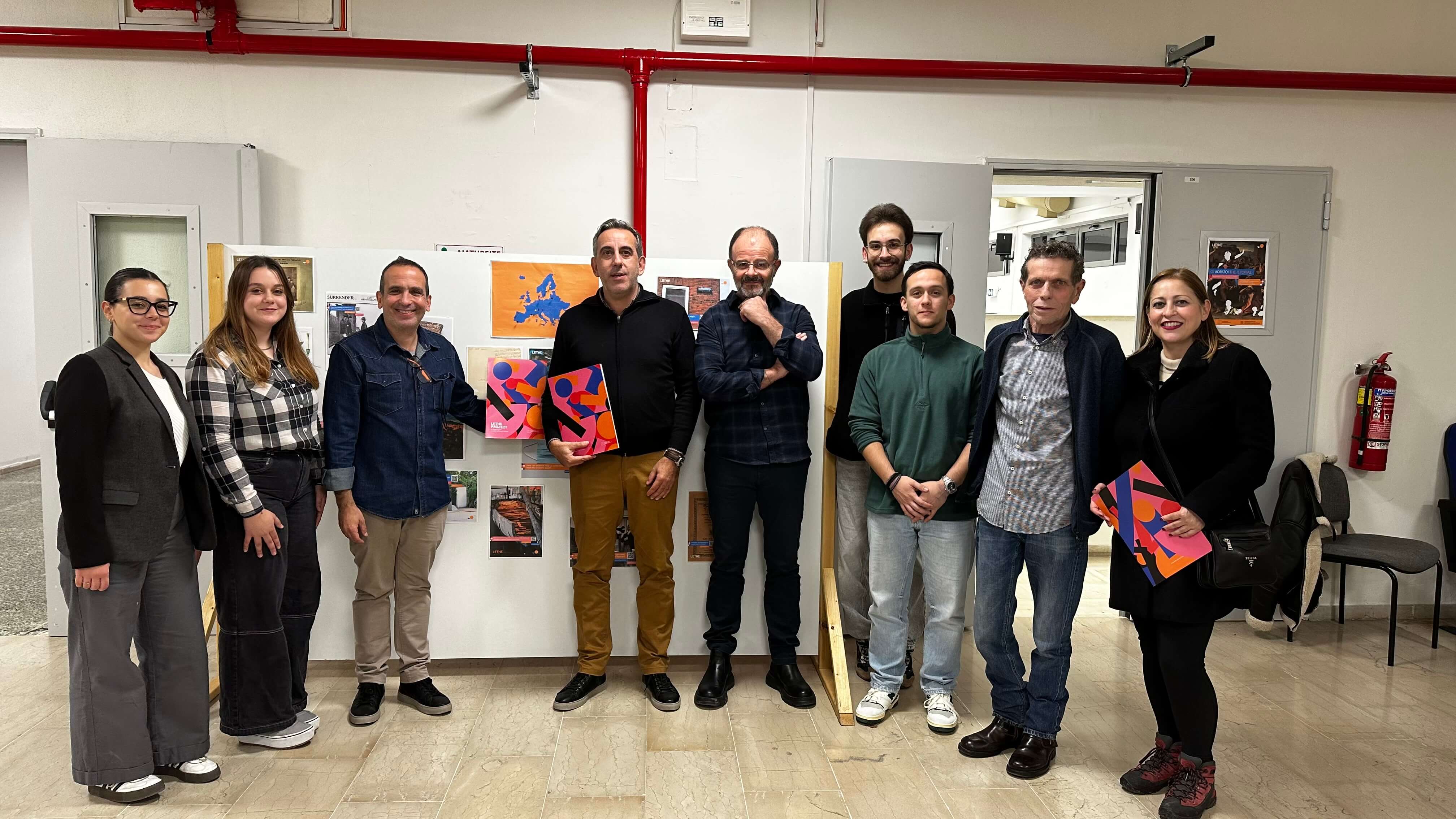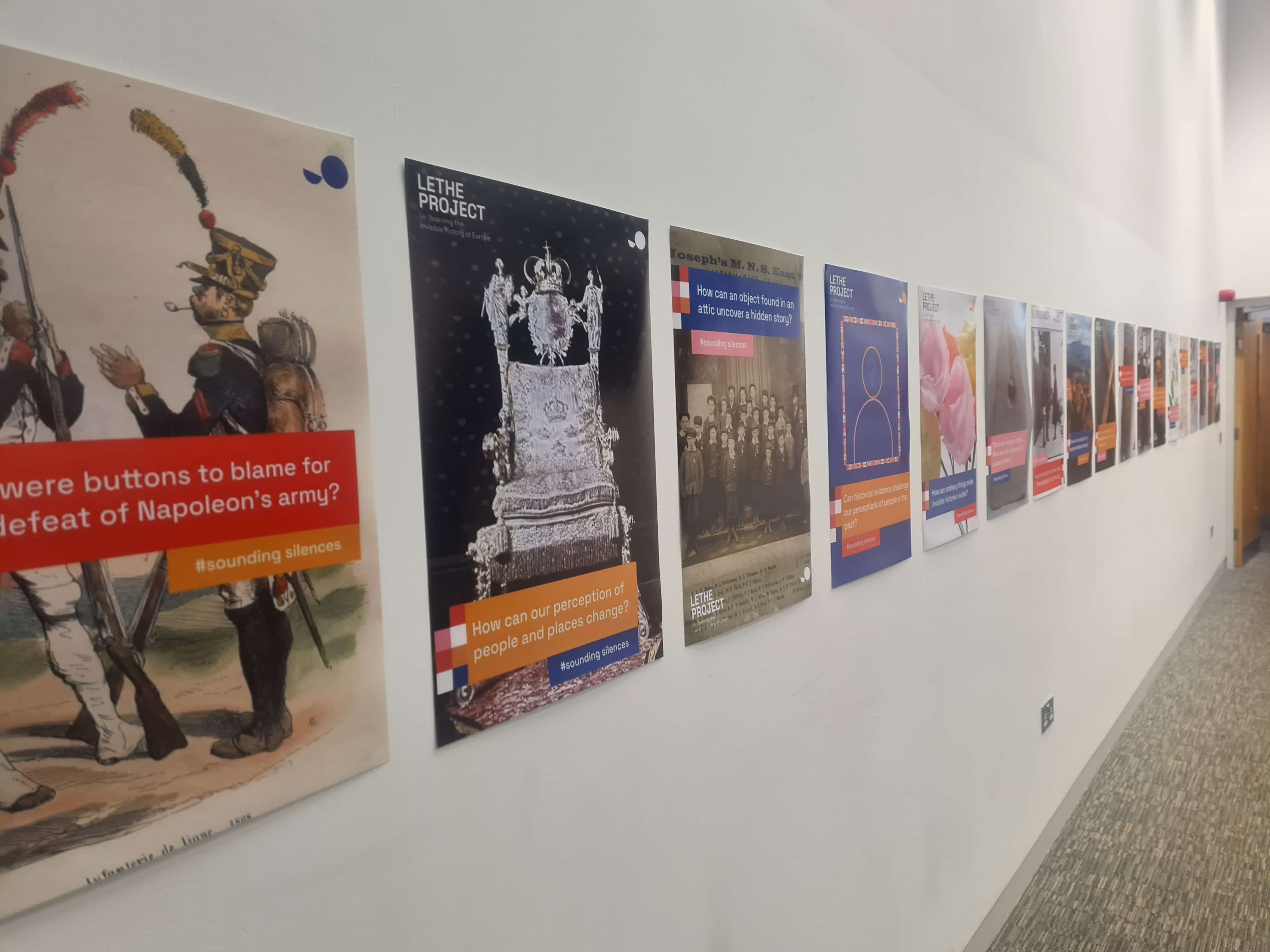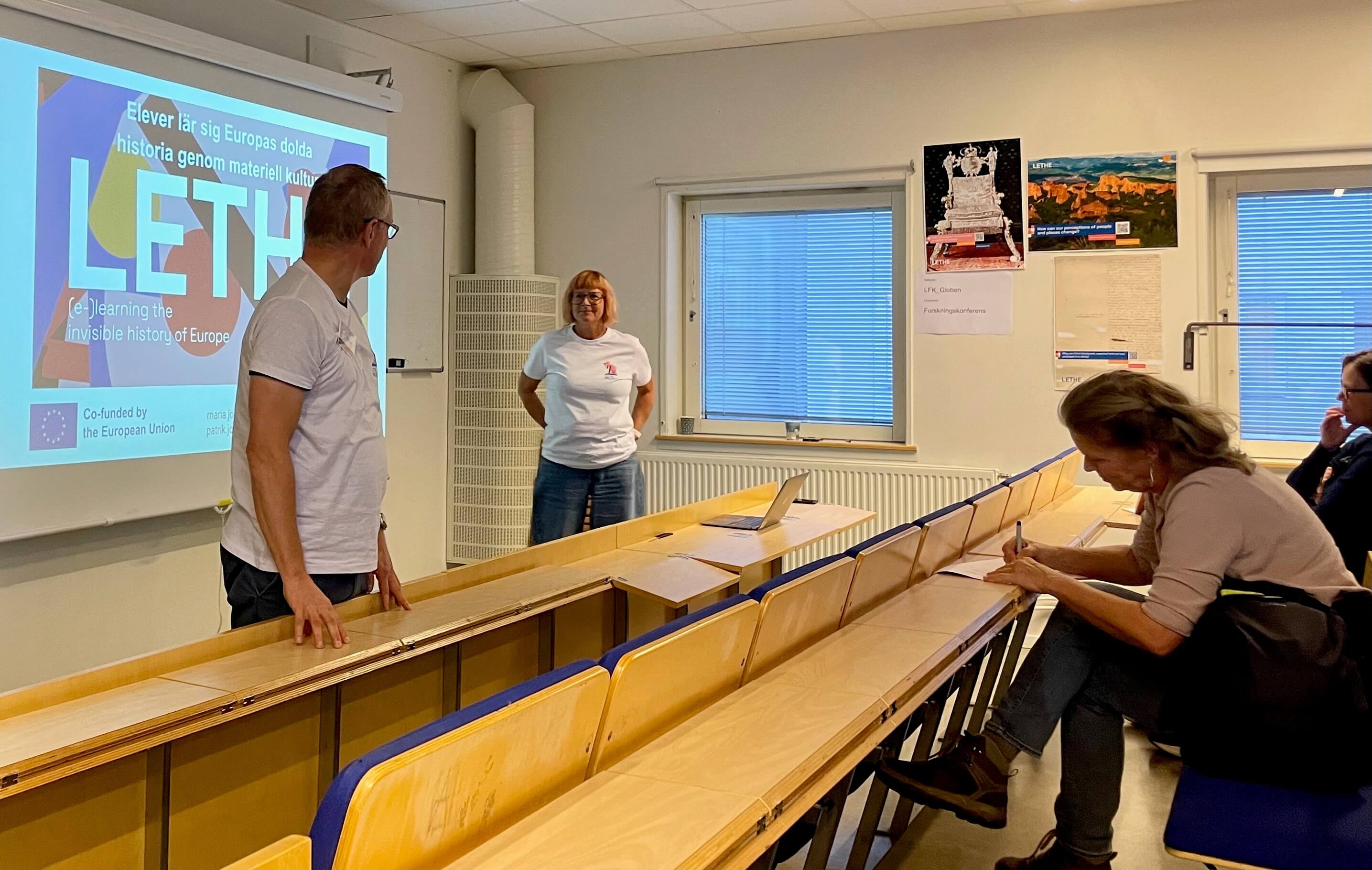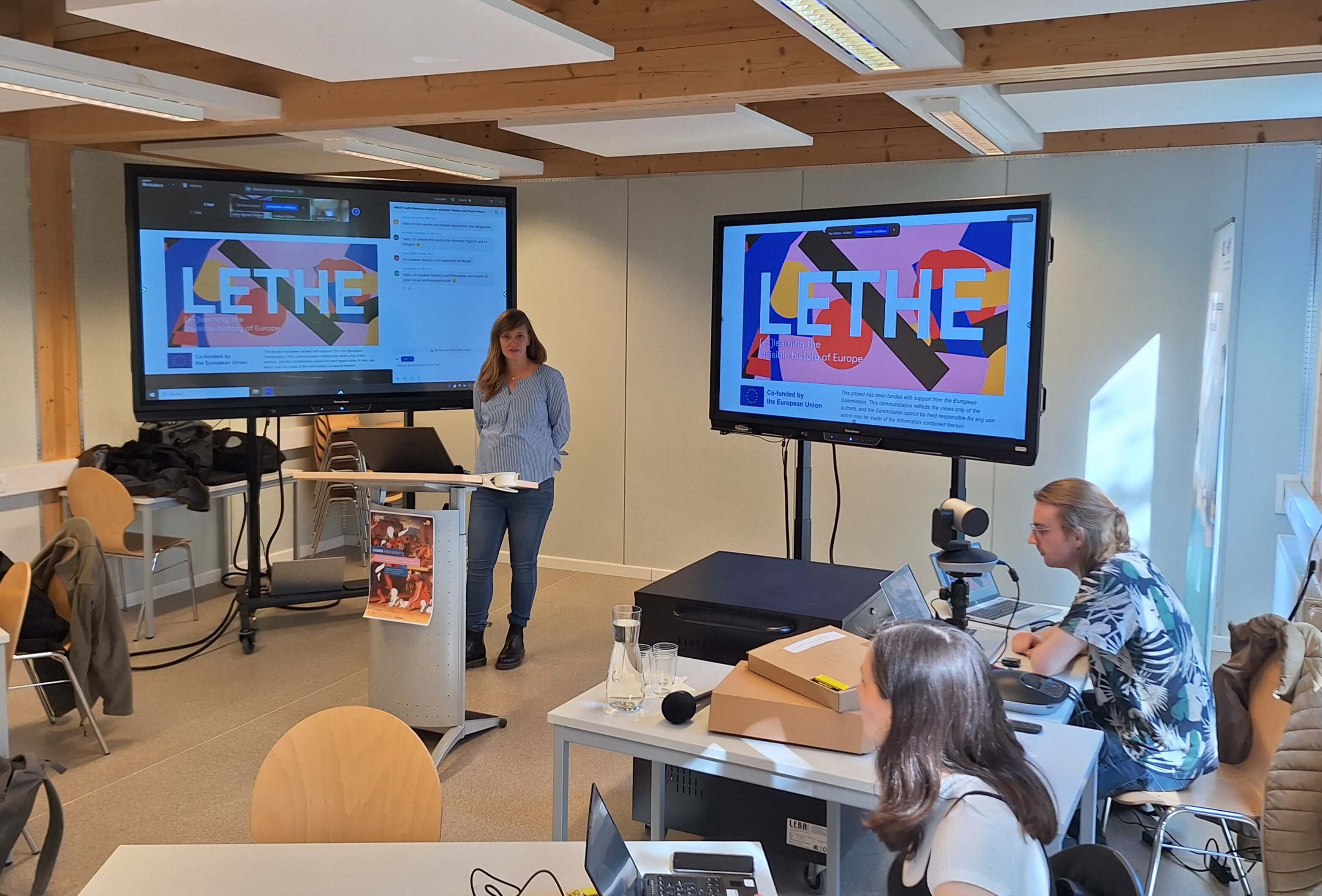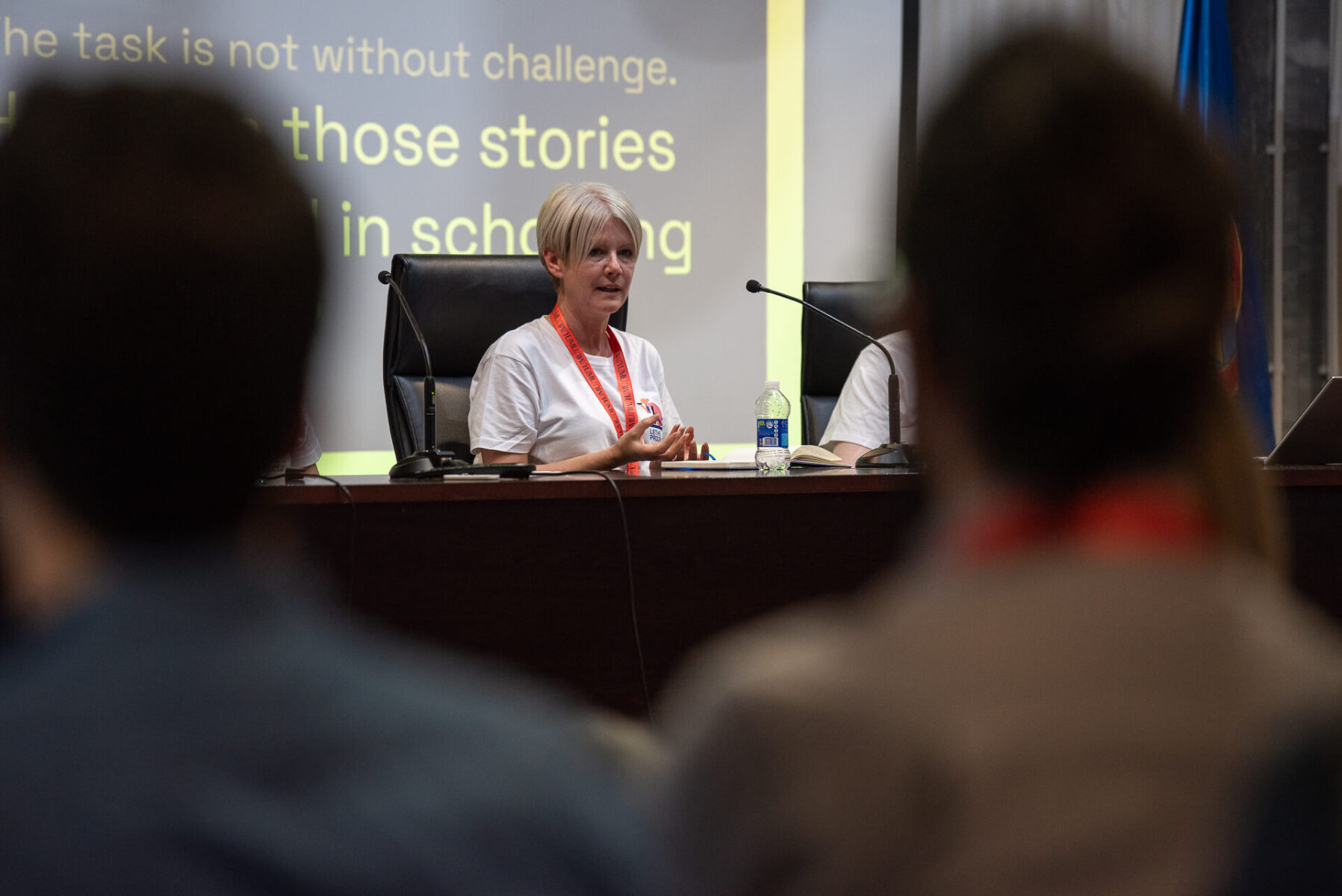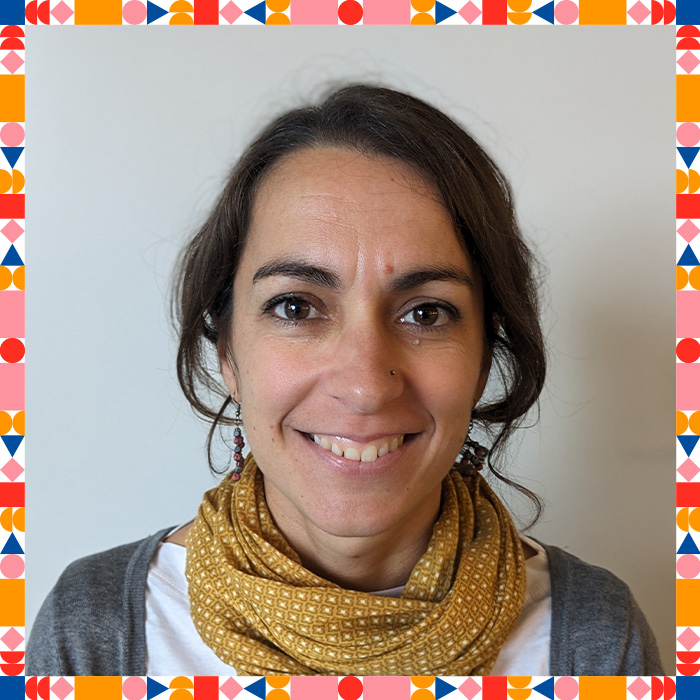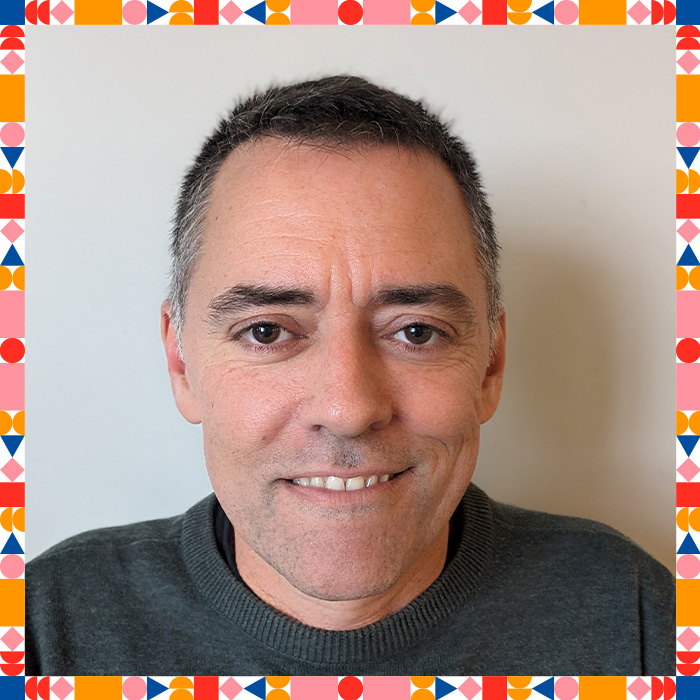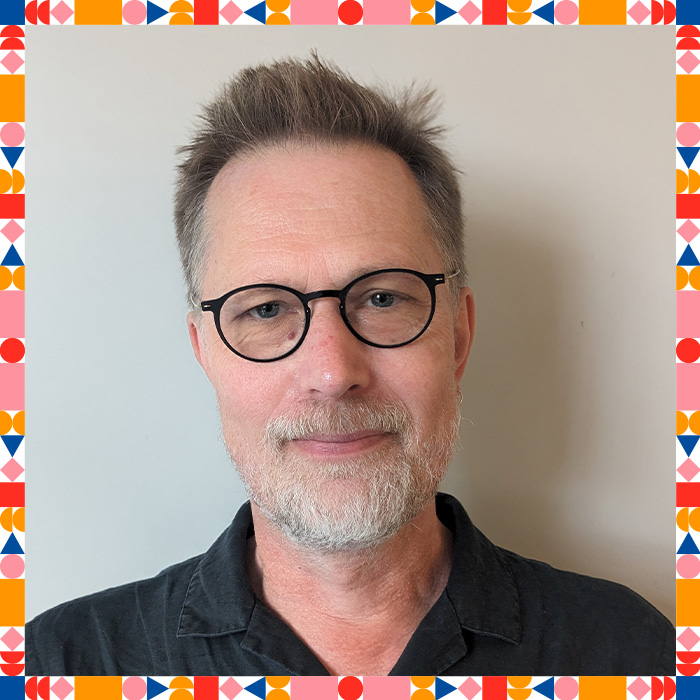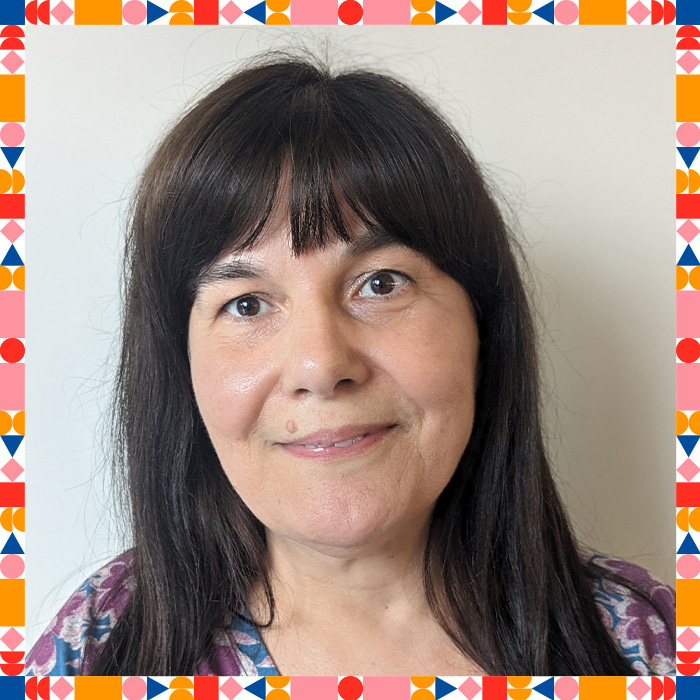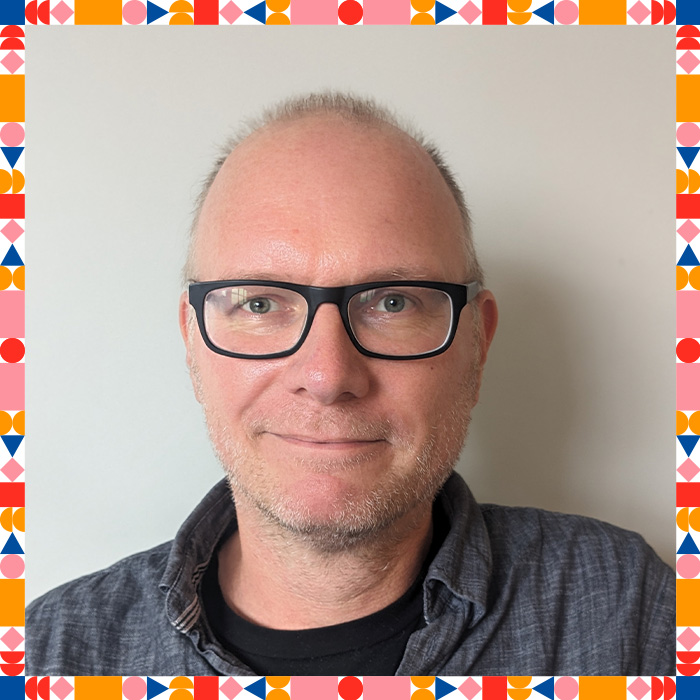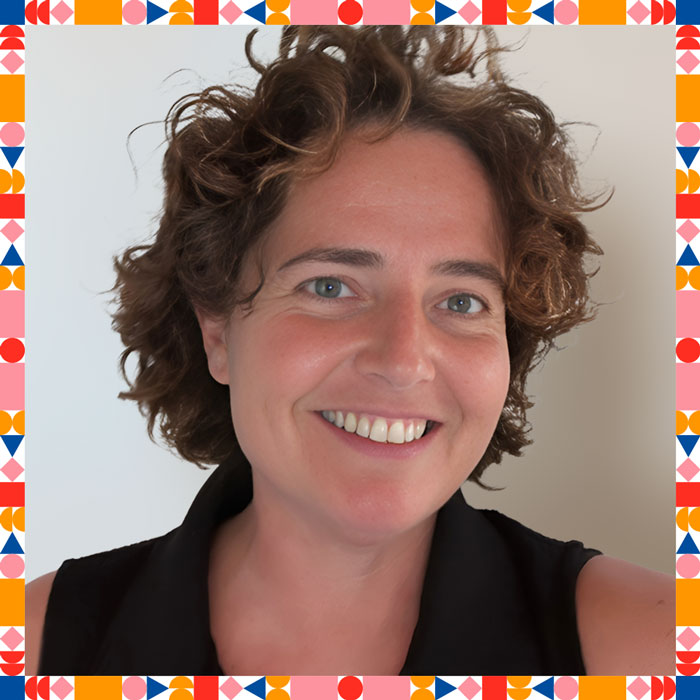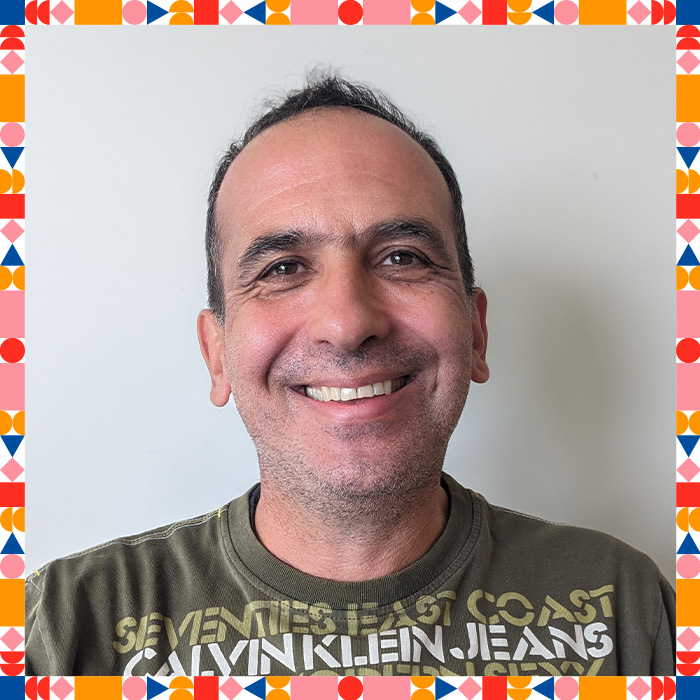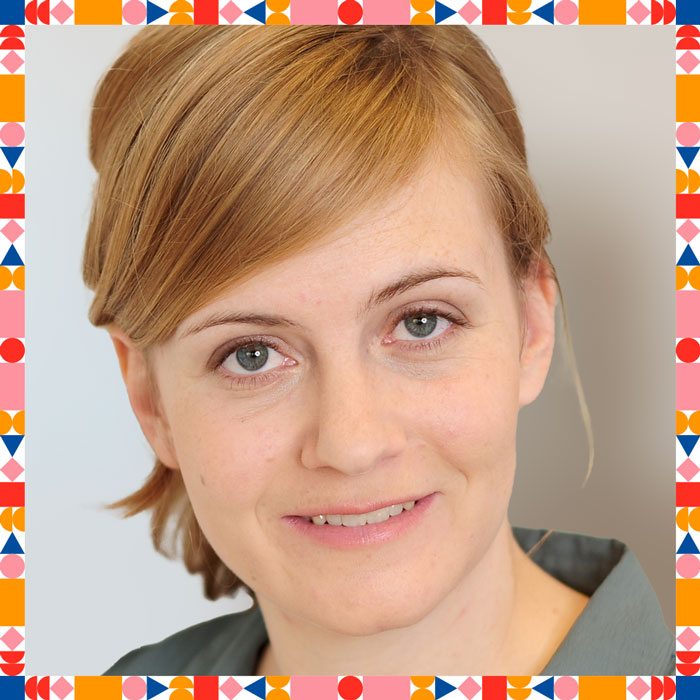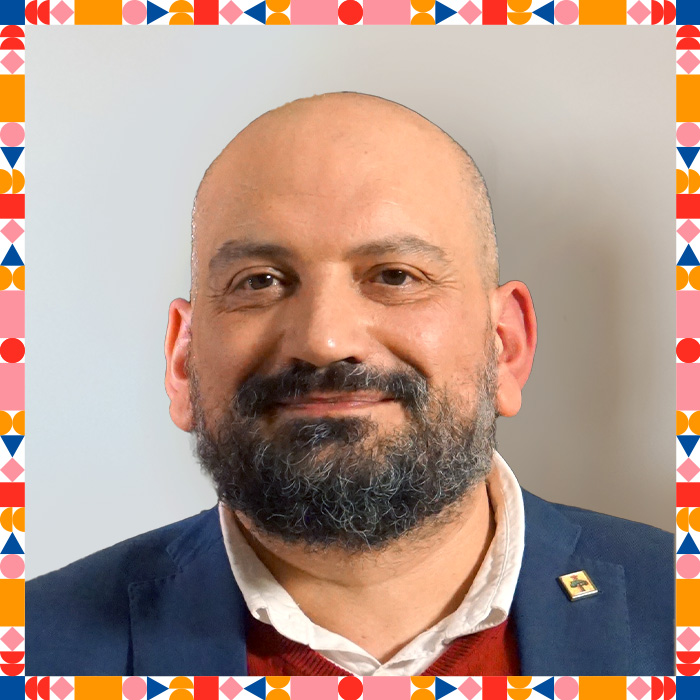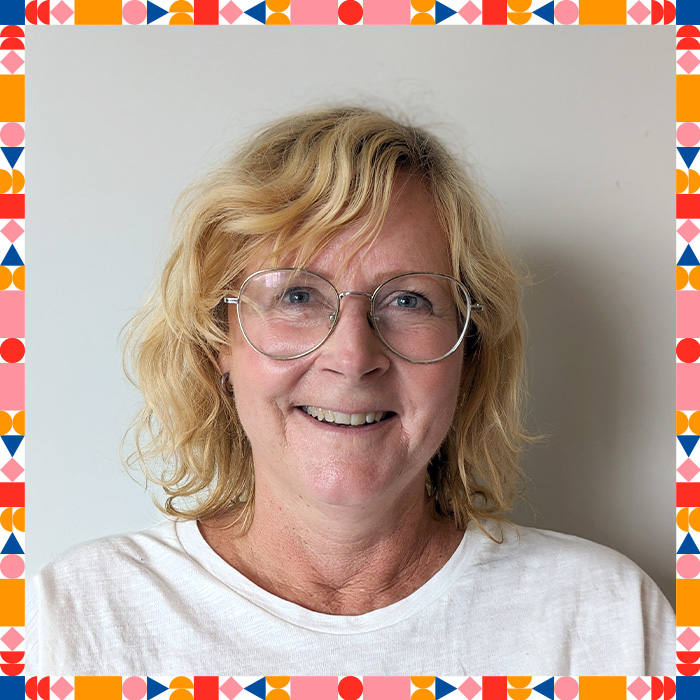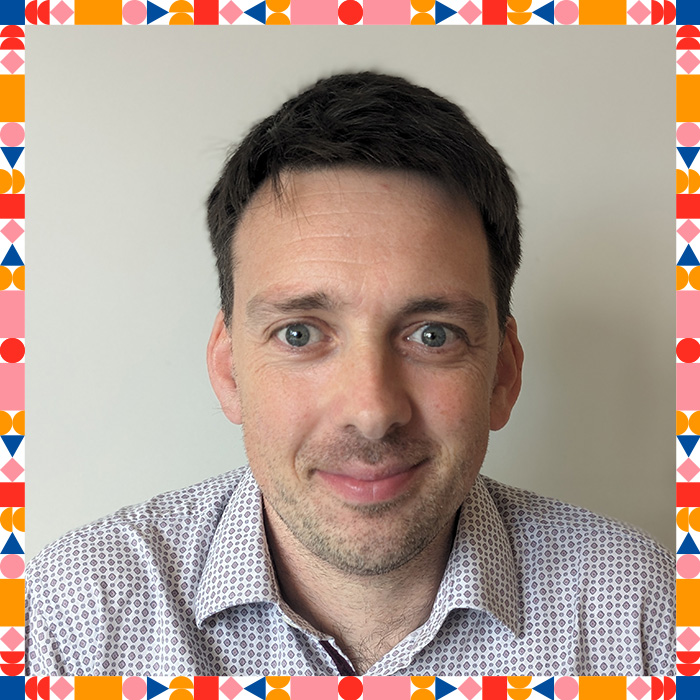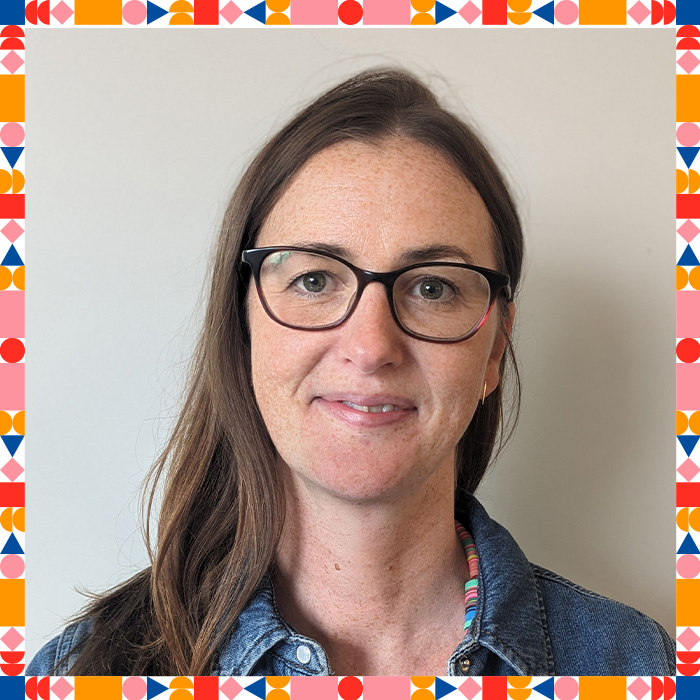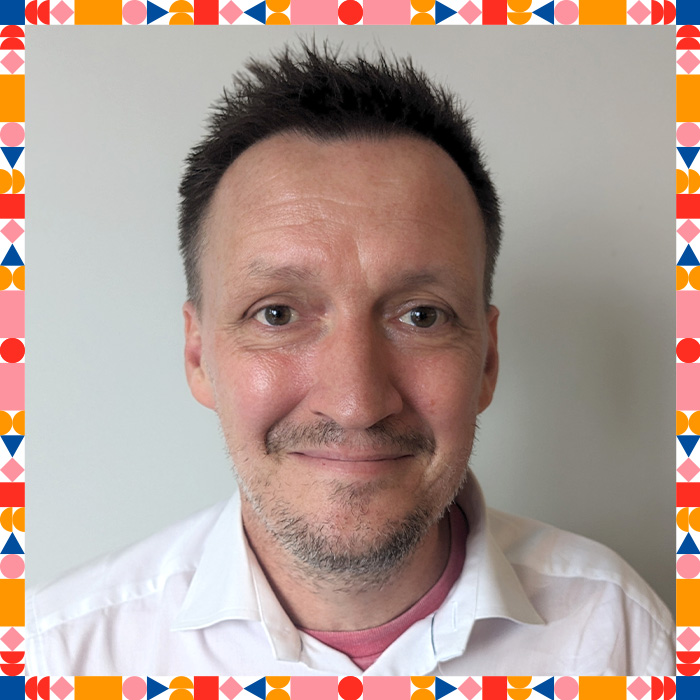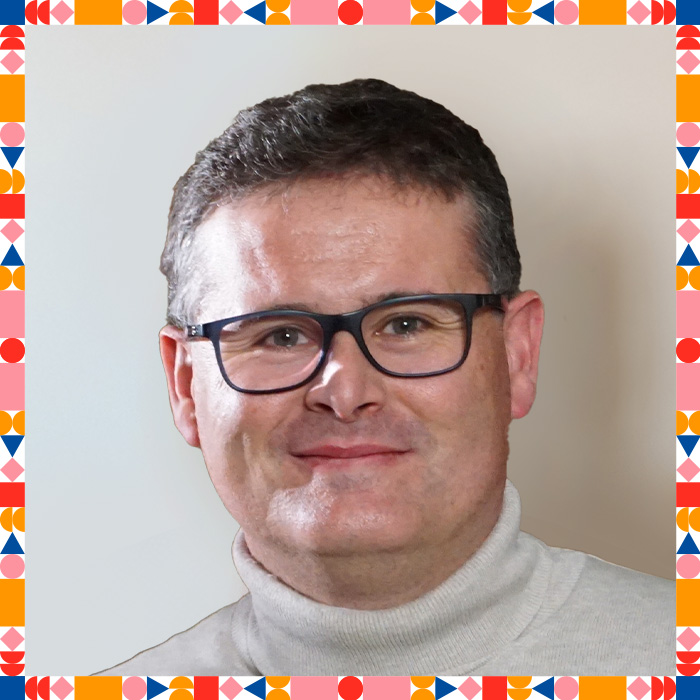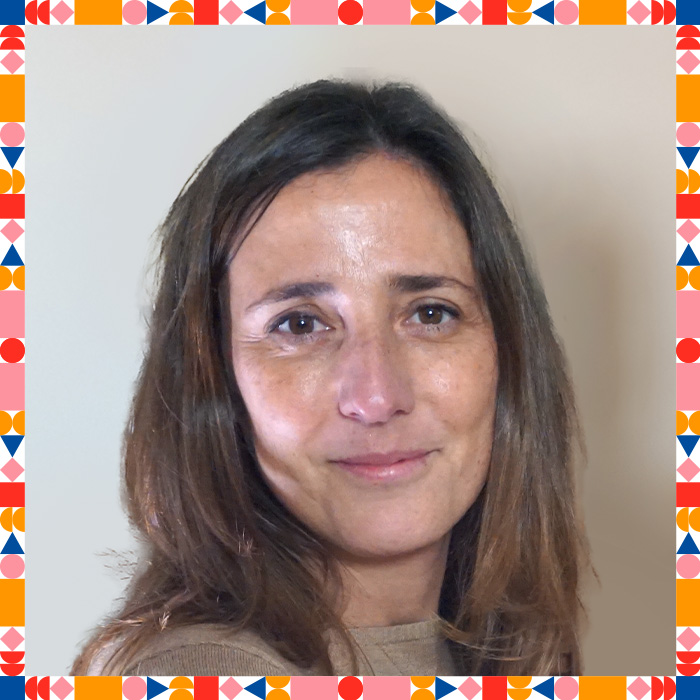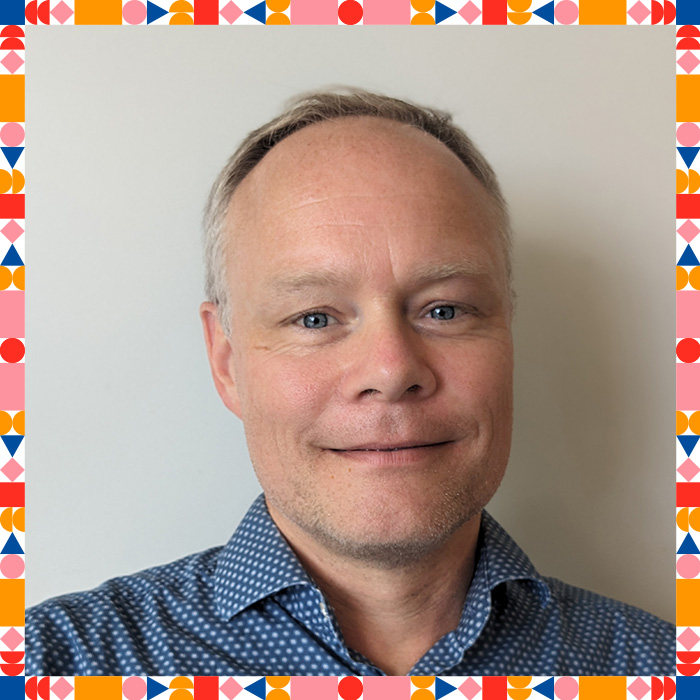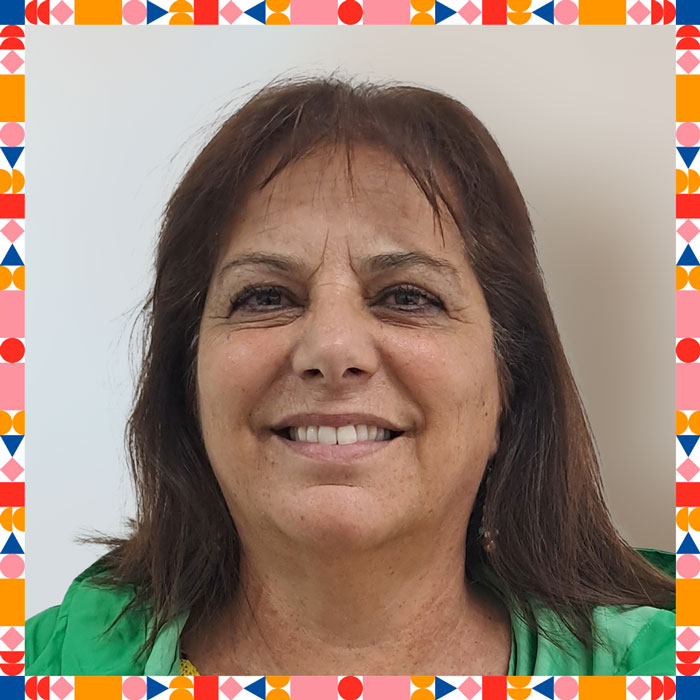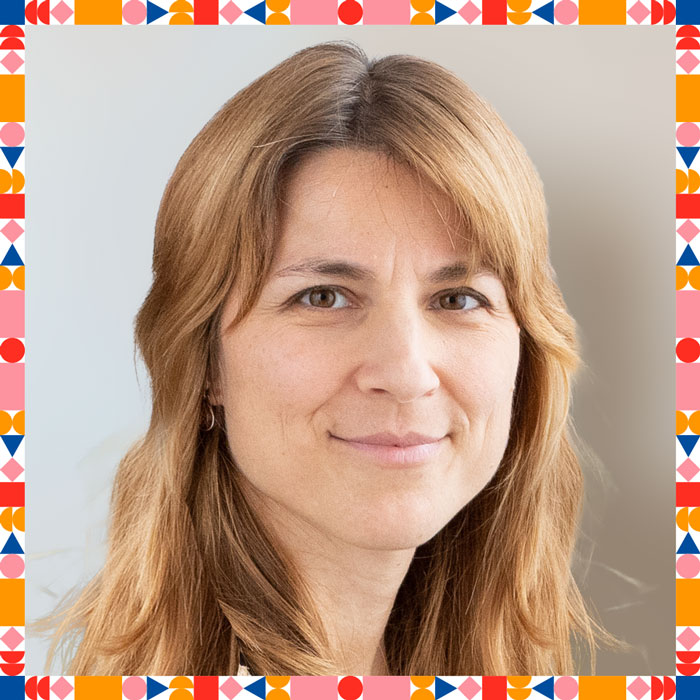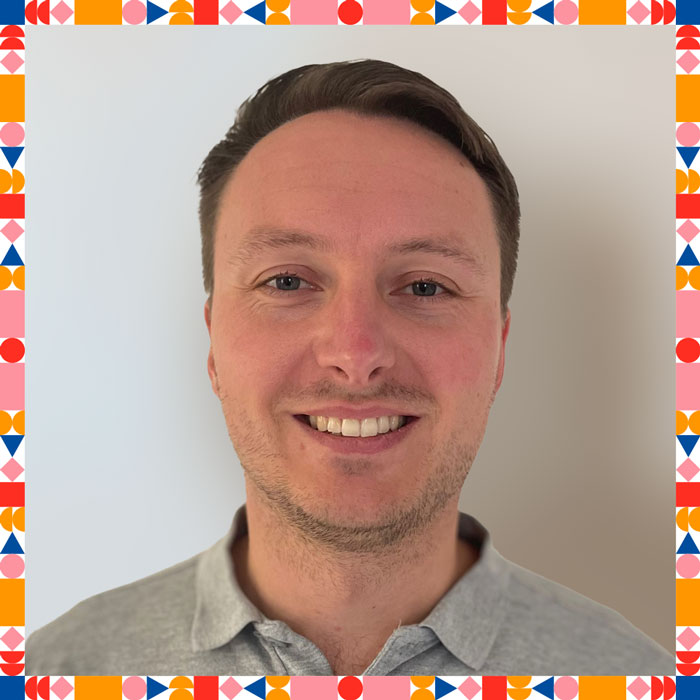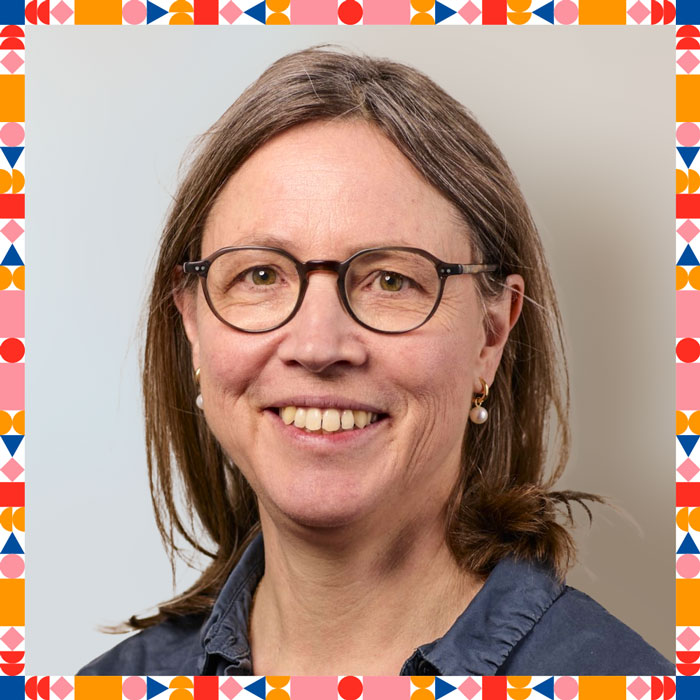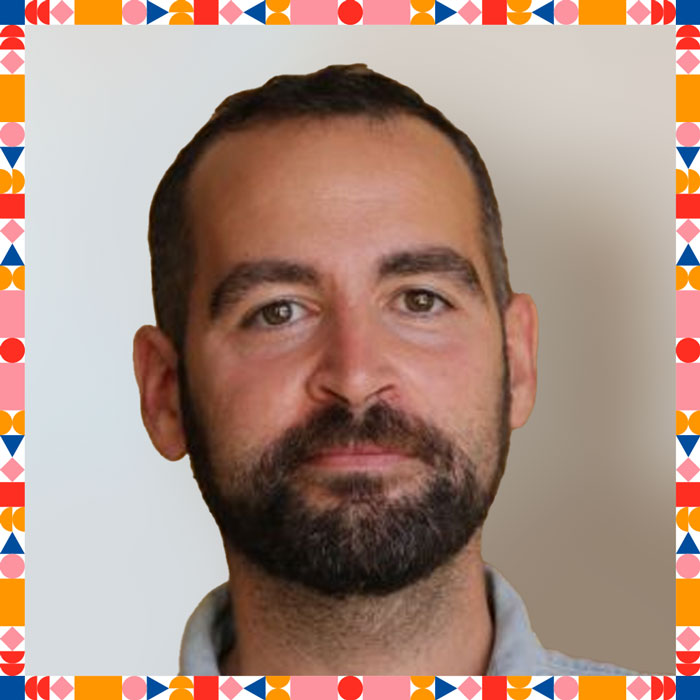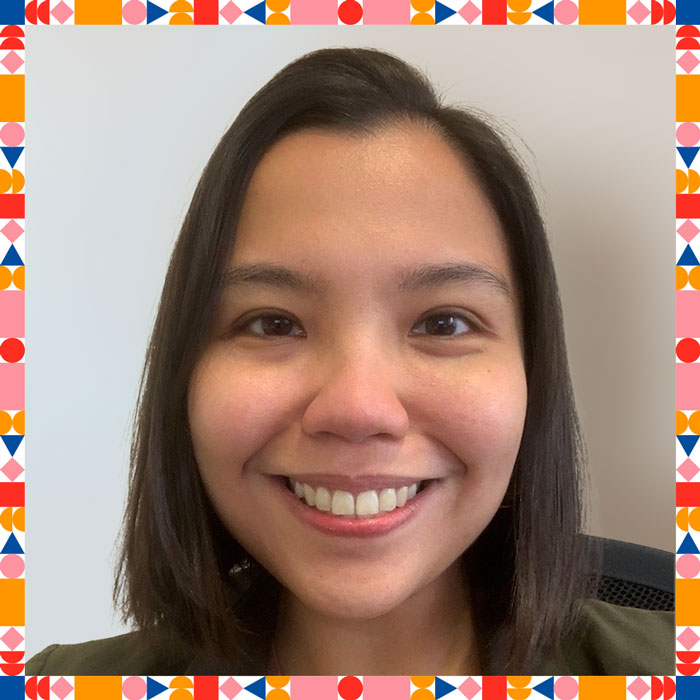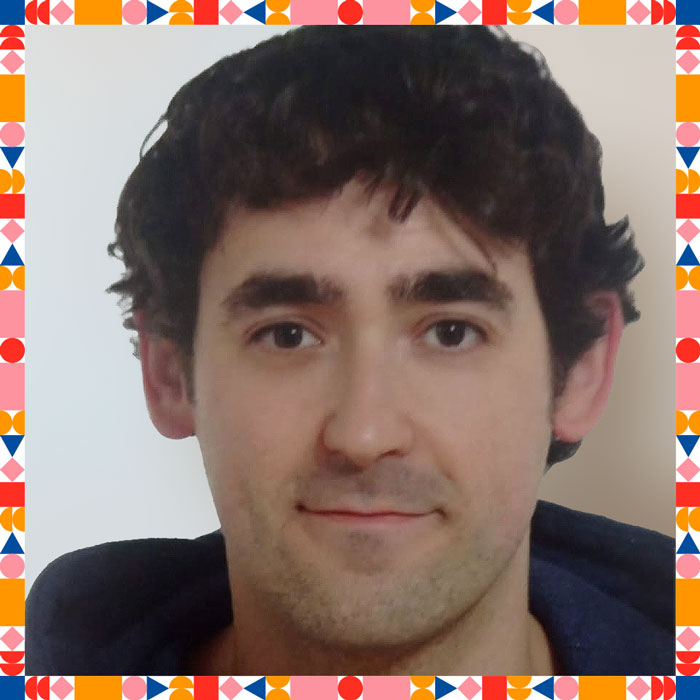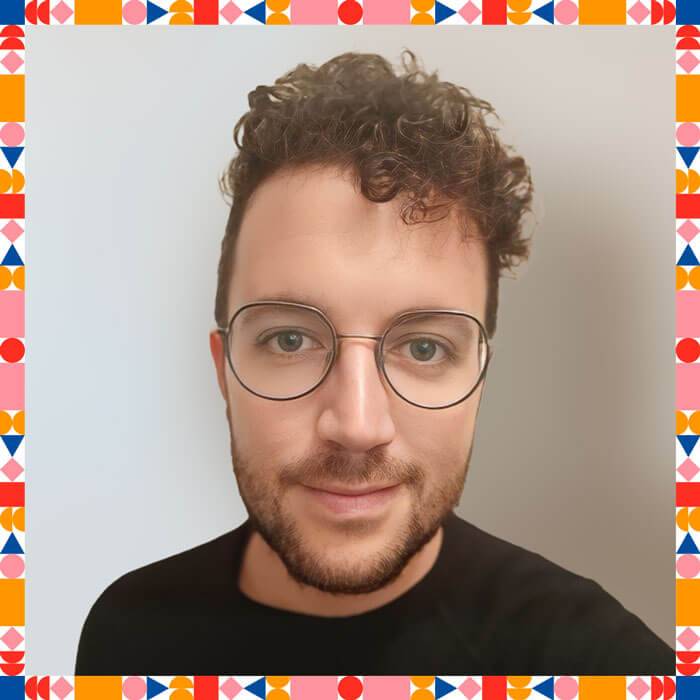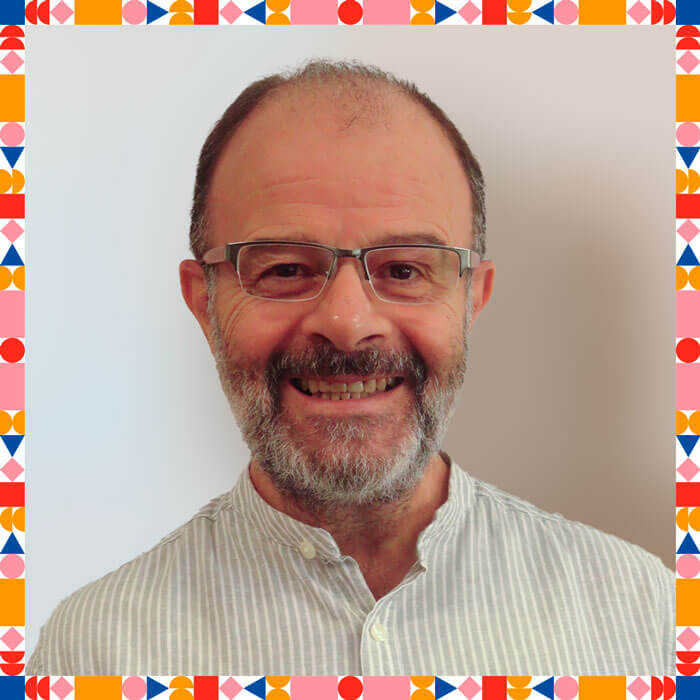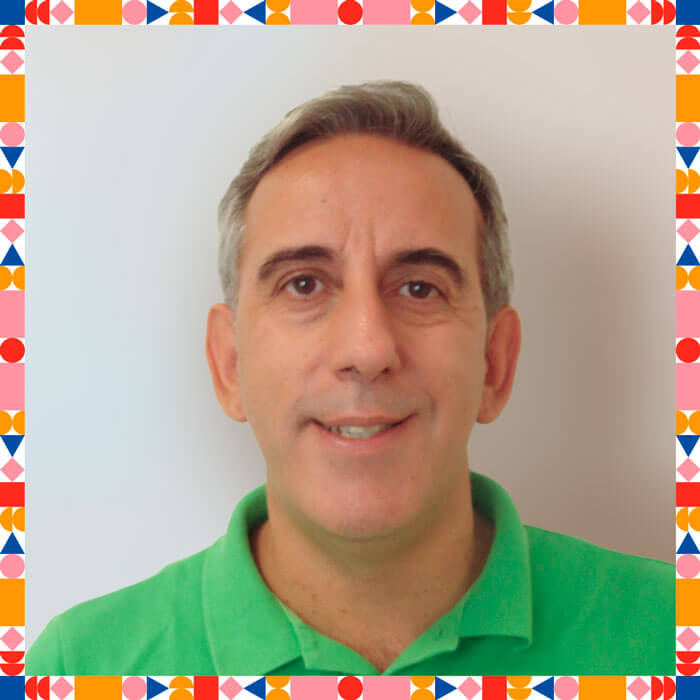¿Cómo surge LETHE?
LETHE: Dando voz a los silenciados
La mayoría de los miembros del proyecto habían intercambiado previamente sus reflexiones sobre la enseñanza de la historia en distintos foros internacionales de educación histórica. Pronto nos dimos cuenta de que, pese a nuestras distintas procedencias, compartíamos problemas comunes y nos enfrentábamos a desafíos similares. Uno de los más urgentes era hacer frente a la cuestión de cómo introducir en el aula una historia más inclusiva y que respondiera y reflejara las necesidades de nuestros estudiantes. Es por ello que nuestro objetivo en este proyecto es dar voz a aquellas historias que están usualmente ausentes en las páginas de los libros de texto y de las lecciones de historia. Es así como, de estas conversaciones y discusiones, nació el proyecto LETHE.
Conoce al equipo de LETHE¿Cómo surge LETHE?
LETHE: Dando voz a los silenciados
La mayoría de los miembros del proyecto habían intercambiado previamente sus reflexiones sobre la enseñanza de la historia en distintos foros internacionales de educación histórica. Pronto nos dimos cuenta de que, pese a nuestras distintas procedencias, compartíamos problemas comunes y nos enfrentábamos a desafíos similares. Uno de los más urgentes era hacer frente a la cuestión de cómo introducir en el aula una historia más inclusiva y que respondiera y reflejara las necesidades de nuestros estudiantes. Es por ello que nuestro objetivo en este proyecto es dar voz a aquellas historias que están usualmente ausentes en las páginas de los libros de texto y de las lecciones de historia. Es así como, de estas conversaciones y discusiones, nació el proyecto LETHE.
Conoce al equipo de LETHE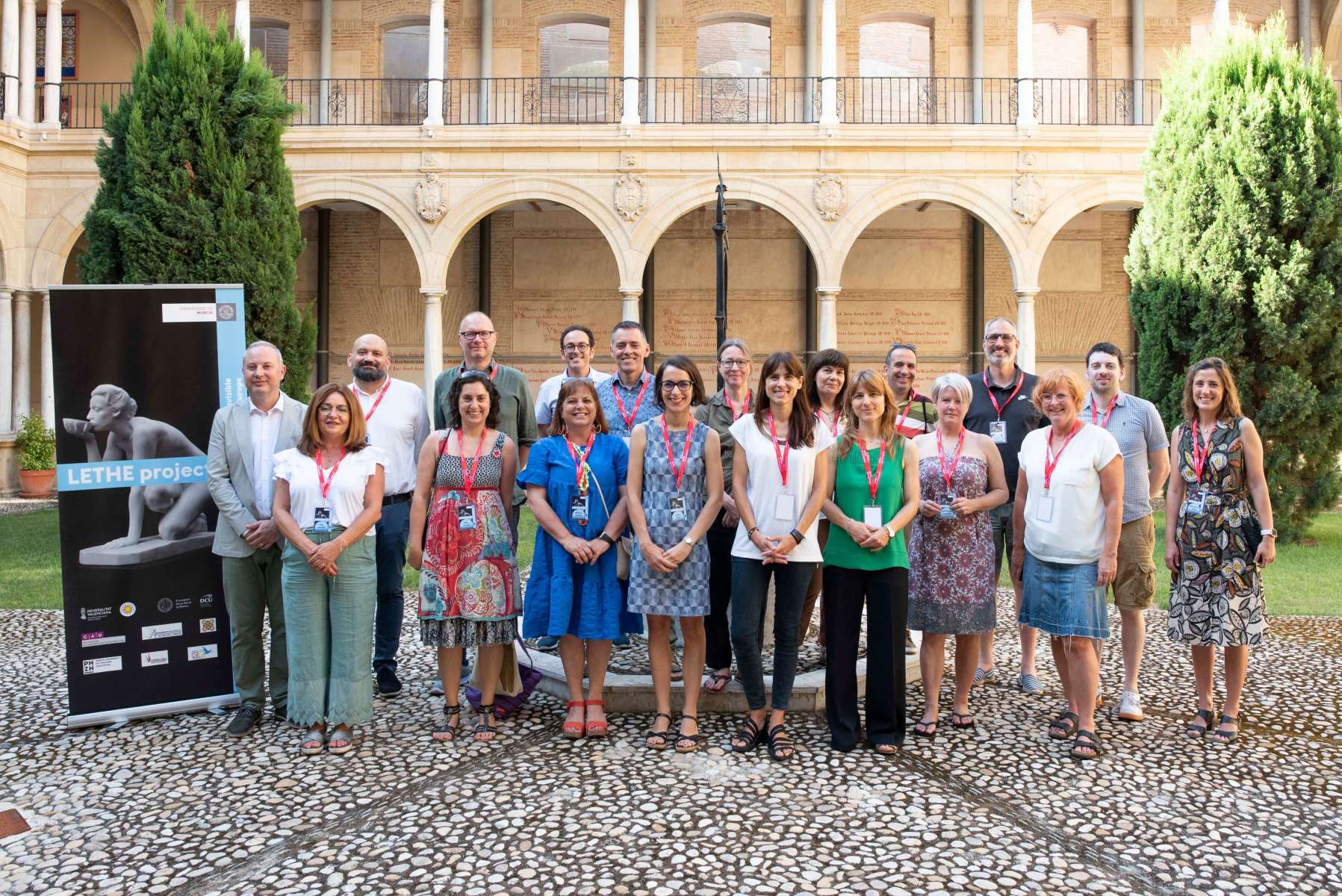



¿Cuáles son sus objetivos?
El proyecto LETHE está enfocado en el desarrollo de una herramienta digital útil para el aprendizaje de los estudiantes y aquellos docentes que buscan la inclusión social subrayando el papel que las diversas culturas y grupos sociales han tenido en el desarrollo de la actual UE. Pretende, a su vez, potenciar la introducción de competencias clave y pensamiento crítico en entornos digitales mediante la introducción de enfoques de aprendizaje basados en la investigación, teniendo a los objetos y la cultura material como principal recurso educativo.
Aquí es donde el proyecto LETHE muestra todo su potencial, ya que tiene como objetivo guiar a los docentes para introducir la diversidad y la multiperspectiva en las lecciones de Historia e implementar métodos activos y creativos. Este proyecto está dirigido a docentes de Historia de Educación Primaria y Secundaria, siendo los destinatarios alumnos de 10 a 14 años.
Explorar las historias invisibles, ocultas, olvidadas o silenciadas de Europa utilizando tecnologías innovadoras y actividades basadas en la investigación diseñadas para mejorar competencias clave como el pensamiento crítico y las habilidades de alfabetización.
Diseñar una gran variedad de herramientas de aprendizaje digital, materiales de capacitación y módulos para presentar a docentes y educadores en toda Europa un enfoque inclusivo e innovador para la educación en historia que permita a los estudiantes interactuar con el patrimonio cultural y material a través de pedagogías de aprendizaje basadas en la investigación y en las fuentes objetuales.
Establecer una red transnacional en toda Europa para compartir experiencias culturales, construir argumentos conjuntos y adoptar las mejores prácticas pedagógicas en un entorno en línea. Transversalmente, se busca informar y ofrecer soporte a docentes, comunidades educativas e instituciones (relacionadas con la educación formal y no formal) sobre cómo introducir estrategias innovadoras en sus aulas.
Documentos
En este apartado es posible encontrar los documentos que han guiado la ejecución del proyecto. Estos te permitirán conocer más en detalle el desarrollo y ejecución del proyecto LETHE.
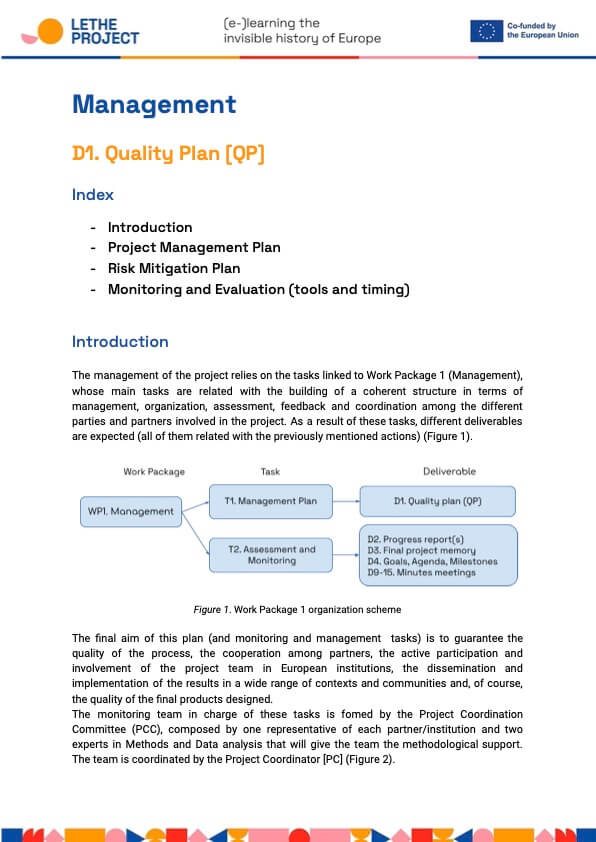
Plan de Calidad
¿Quieres saber cómo hemos gestionado el proyecto? El plan de calidad describe los procesos de seguimiento, control y evaluación del proyecto así como de los canales de comunicación utilizados.
Descargar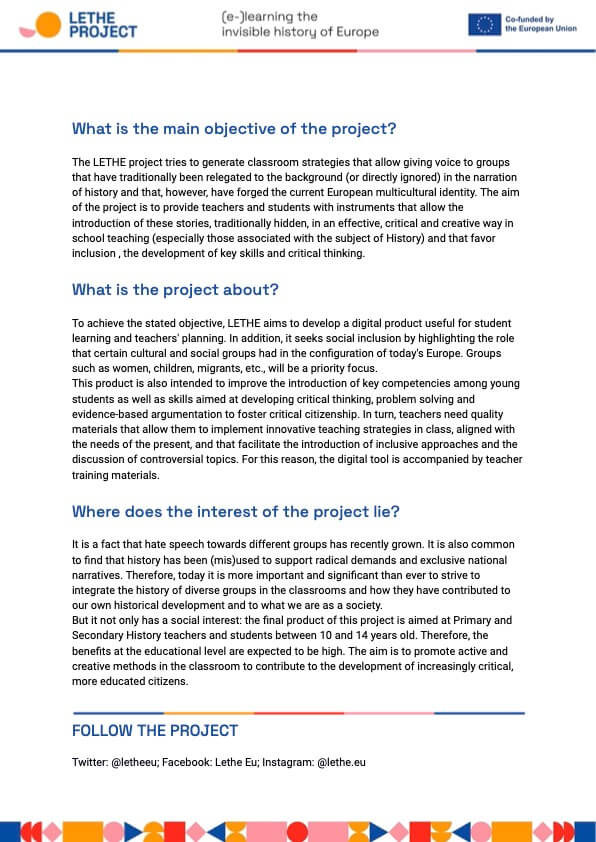
Conoce el proyecto LETHE
¿Quieres conocer algunos de los aspectos básicos del proyecto? Este documento explica brevemente en qué consiste LETHE. No te quedes sin saberlo.
Descargar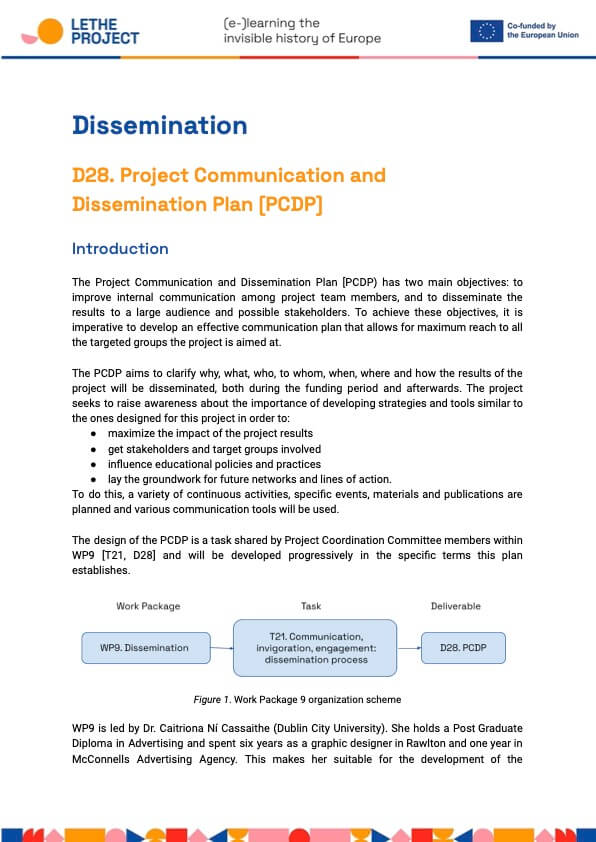
Plan de Comunicación y Difusión
Una preocupación constante del equipo del proyecto ha sido la comunicación y difusión de los resultados. En este plan recogemos todos los procesos asociados a esta tarea.
Descargar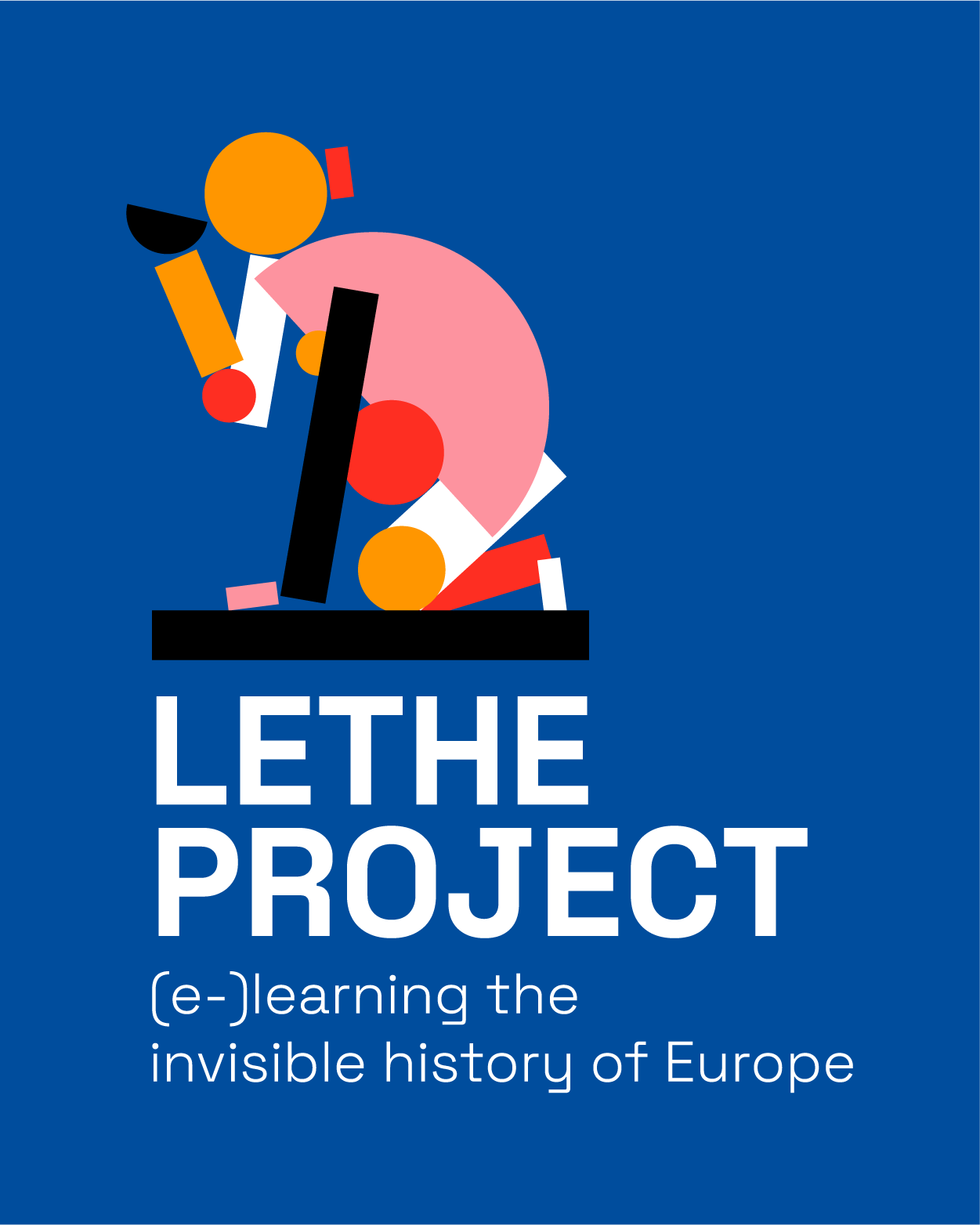
LETHE Project. Explora el proyecto
Echa un vistazo rápido y visual a los aspectos clave de este proyecto. Seguro que cuando lo conozcas querrás seguir explorándolo y unirte a esta creciente comunidad de docentes de historia.
Descargar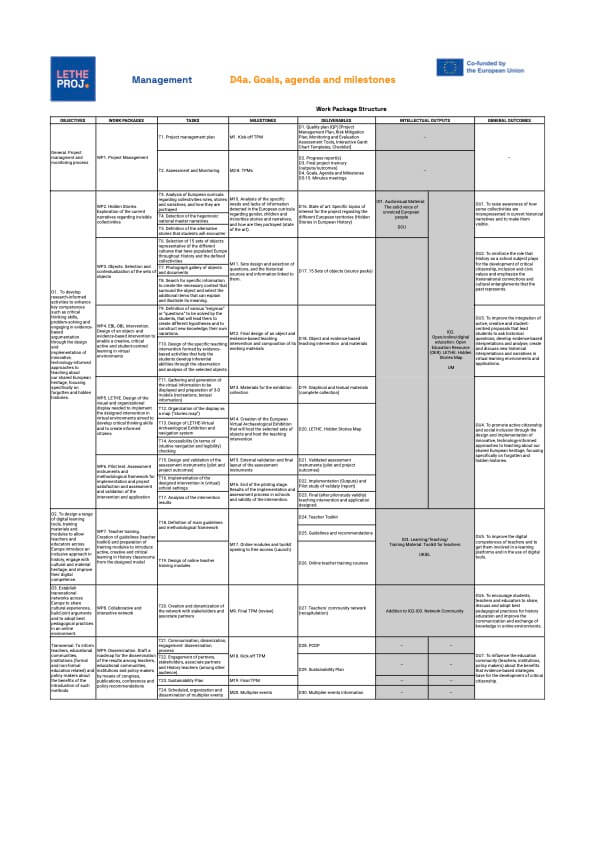
Objetivos, agenda e hitos
Un proyecto internacional requiere de una concienzuda organización. Puedes echar un vistazo a cómo se ha organizado el equipo de trabajo de LETHE
Descargar
Objetivos SMART
¿Qué se pretende conseguir con la consecución del proyecto LETHE? Te lo explicamos brevemente.
DescargarGalería del proyecto
¿Por qué LETHE?
En la mitología griega, LETHE era el nombre de uno de los ríos del inframundo. Cuenta el mito que quienes bebían de sus aguas lo olvidaban todo. La sociedad actual parece haber olvidado o silenciado muchas de las voces que conforman la historia. El proyecto LETHE brinda a los estudiantes las herramientas para recuperar las historias ocultas que, por innumerables razones, la sociedad actual ha olvidado.
La obra de arte elegida para inspirar el logotipo de LETHEsimboliza el olvido, pero también, en su nueva forma, representa nuestro compromiso de desenterrar y dar voz a historias olvidadas. La escultura "Lethe", que inspiró originalmente nuestro logotipo, fue creada en 1908 por el escultor alemán Wilhelm Wandschneider (1866-1942). Su estatua muestra a la diosa Lethe bebiendo de las aguas del río homónimo.
Es importante reconocer que Wandschneider aceptó numerosos encargos durante su vida, incluidos algunos de miembros del Partido Nazi. Wandschneider se unió al Partido Nazi en 1930 y se benefició del dominio nazi a través de nuevos encargos.
El proyecto LETHE pretende romper en pedazos esa imagen estática y exclusiva, representada en la estatua de Wandschneider, y transformarla en las historias diversas, y dinámicas que conforman las narrativas ocultas de Europa.
La nueva imagen recontextualizada infunde color a la estatua gris y sin vida de Wandschneider, en la que cada color representa las diversas historias ocultas o silenciadas que la sociedad ha olvidado. LETHE, en su nuevo diseño, simboliza la interculturalidad, la transnacionalidad y la diversidad de las muchas culturas y voces escondidas detrás de la historia de Europa.
Conoce al equipo de LETHE
Nuestro equipo es más que un grupo de profesionales, nos apasiona lo que hacemos. Operamos en el campo de la investigación, docencia y divulgación de la historia, la arqueología, la historia del arte y la didáctica. Somos, por tanto, un equipo multidisciplinar y transnacional que aporta riqueza y diversos puntos de vista al proyecto.
Laura Arias-Ferrer
Universidad de Murcia - España
Alejandro Egea-Vivancos
Universidad de Murcia - España
Caitriona Ní Cassaithe
Dublin City University - Irlanda
Kenneth Nordgren
Centrum för de samhällsvetenskapliga ämnenas didaktik (CSD). Karlstads Universitet. - Suecia
Helena Pinto
Agrupamento de Escolas do Vale de S. Torcato Portugal - Portugal
Sebastian Barsch
Universität zu Köln - Alemania
Alexandra Chavarria
Università degli Studi di Padova - Italia
Kostas Kasvikis
University of Western Macedonia - Grecia
Anna Lienau
Christian-Albrechts-Universität zu Kiel - Alemania
Christian Mathis
Pädagogische Hochschule Zürich - Suiza
Sara Pernas
IES Torrellano - España
Sebastián Molina-Puche
Universidad de Murcia - España
Maria Johansson
Centrum för de samhällsvetenskapliga ämnenas didaktik (CSD). Karlstads Universitet. - Suecia
Peter Whelan
Dublin City University - Irlanda
Maria Barry
Dublin City University - Irlanda
Ulrik Holmberg
Centrum för de samhällsvetenskapliga ämnenas didaktik (CSD). Karlstads Universitet. - Suecia
Helena Jiménez-Vialas
Universidad de Murcia - España
Jorge Ortuño-Molina
Universidad de Murcia - España
Esperanza Clares-Clares
Universidad de Murcia - España
Patrik Johansson
Centrum för de samhällsvetenskapliga ämnenas didaktik (CSD). Karlstads Universitet. - Suecia
Branca Maria Pereira
Agrupamento de Escolas do Vale de S. Torcato Portugal - Portugal
Andreas Hübner
Christian-Albrechts-Universität zu Kiel - Alemania
Fuensanta Monroy-Hernández
Universidad de Murcia - España
Erik Balschun
Selma-Lagerlöf-Gemeinschaftsschule - Alemania
Beatrice Kümin
Pädagogische Hochschule Zürich - Suiza
Jonas Dischl
Pädagogische Hochschule Zürich - Suiza
Flora Langbehn
Selma-Lagerlöf-Gemeinschaftsschule - Alemania
Adrián Bru Serrano
IES Torrellano - España
Marianne Grace Z. Araneta
Università degli Studi di Padova - Italia
Ricardo Silva
Agrupamento de Escolas do Vale de S. Torcato Portugal - Portugal
Víctor Insa Martínez
IES Torrellano - España
Mirko Fecchio
Università degli Studi di Padova - Italia
Andreas Andreou
University of Western Macedonia - Grecia
Kiki Amarantidou
University of Western Macedonia - Grecia
Giannis Kaskamanidis
University of Western Macedonia - Grecia
Giannis Bounovas
University of Western Macedonia - Grecia
Si necesitas una guía para explorar la web y sacar partido a los materiales que se encuentran alojados en ella, puede consultar los materiales alojados en Herramientas LETHE o pulsando este botón


